We’re on a mission
Our world-class scientific team brings together leading experts in oncology, immunology, machine learning, virology and even theoretical physics.
We have partnerships with top academic labs at the cutting edge of research in essential fields including viral mimicry, crystallography and computational biology.
We are proud to be backed by an outstanding group of investors and guided by a board with deep expertise in building successful biotech companies.
Our name pays homage to the spirit of exploration and innovation in ancient Rome — and it’s also a fun play on the word “repeatome.” The “O” in our logo is designed as a toggle switch, reflecting our ambition to illuminate the secrets of this uncharted territory.

A dedicated team
Management Team
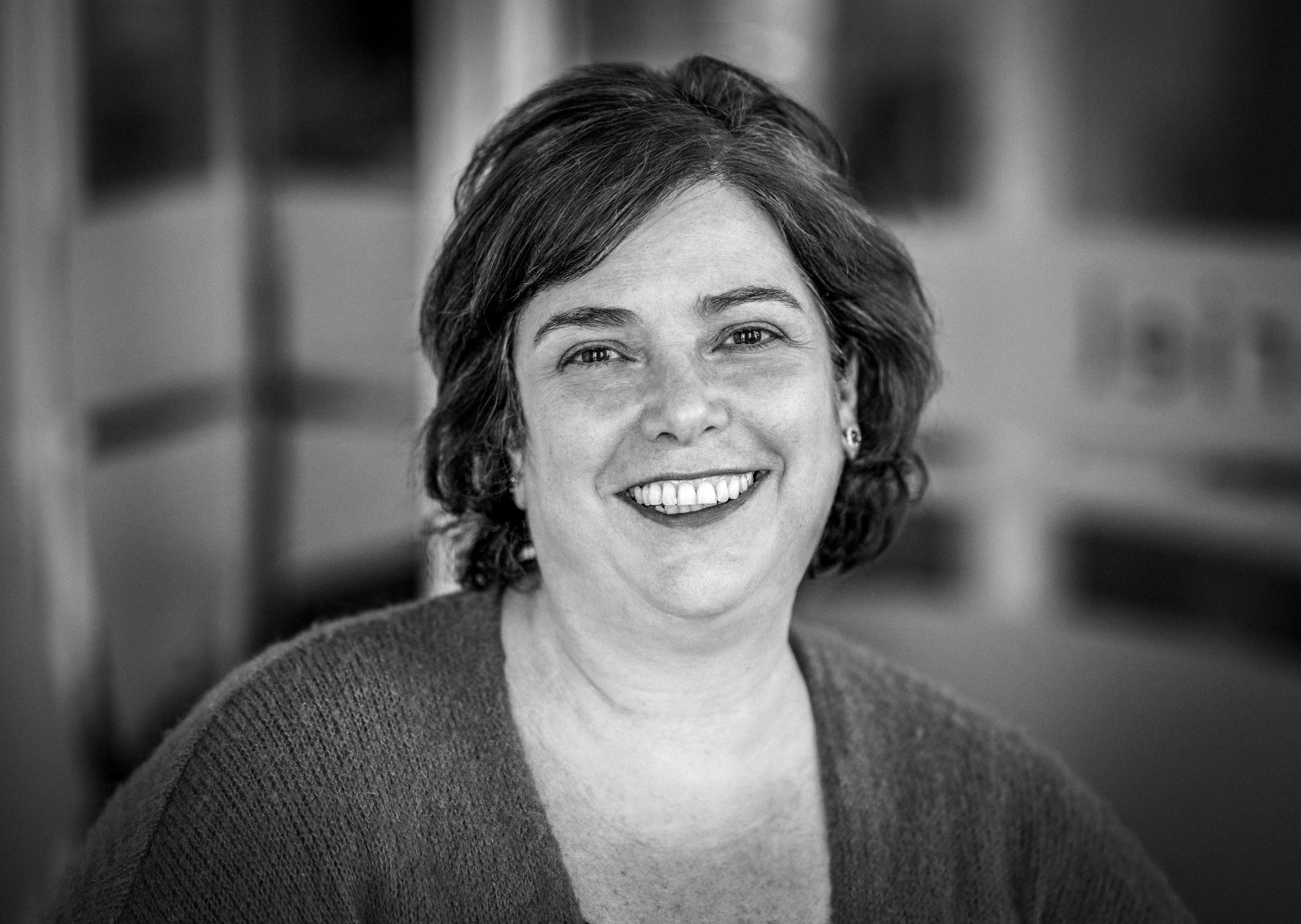

A champion of exploring new frontiers as a scientific leader and company builder, with deep expertise in applying machine learning and computational technologies to drug discovery and development.
Rosana co-founded ROME Therapeutics as the first-ever entrepreneur-in-residence at GV (formerly Google Ventures), where she continues to serve as a Life Sciences Fellow. ROME is the industry leader in illuminating the dark genome’s role in human disease and translating these insights into first-in-class therapeutics across a spectrum of diseases. Prior to launching ROME, Rosana was the founding Chief Scientific Officer of Nimbus Therapeutics, where she led the company’s application of advanced computational technologies to the design and development of novel therapeutics. Most notably, Rosana led Nimbus’ discovery efforts for programs targeting acetyl-CoA carboxylase (ACC) and tyrosine kinase 2 (TYK2), which were acquired in blockbuster deals by Gilead and Takeda, respectively.
Rosana is a member of the board of directors of Schrödinger and previously consulted for Third Rock Ventures and Atlas Venture. She sits on the Key Advisory Board for the Blavatnik Fellowship in Life Science Entrepreneurship at Harvard Business School and also serves as an Expert in Residence (XIR) for the Harvard Office of Technology Development.
Recognitions Rosana has received include selection for the Forbes 50 Over 50 Entrepreneurs list (2022), the Endpoints Women in Biopharma list (2019), and the Fierce Pharma Fiercest Women in Life Sciences (2019). She also received a NEVY Award for Rising Star Entrepreneur from the New England Venture Capital Association (2016). Rosana earned her M.D. from Universidade do Estado do Rio de Janeiro in Brazil and her Ph.D. in Molecular and Cellular Biology from Tufts University.
An accomplished scientist with rich experience in cell biology, animal models of cancer and inflammation, pharmacology and translational medicine with over 20 years of experience in drug discovery in both small biotechnology companies and large pharmaceutical companies.
Prior to joining ROME, Heike was the Chief Scientific Officer at Ribon Therapeutics, where she led the discovery and clinical introduction of two first-in-class monoART inhibitors, the PARP7 inhibitor RBN-2397 in oncology, and the PARP14 inhibitor RBN-3143 in I&I. Prior to Ribon, Heike was the Senior Director of Biology at Epizyme where, among other responsibilities, she was the project leader for the company’s EZH2 inhibitor program, tazemetostat, which was FDA-approved in 2020 as Tazverik . Before that, she was a research fellow at Merck and the biology project lead for the company’s clinical stage AKT inhibitor, MK-2206. Heike served on the Board of Directors of Civetta Therapeutics and is an author of more than 40 manuscripts in leading journals.
Heike received her Ph.D. in biochemistry at the Friedrich Schiller University of Jena in Germany and completed postdoctoral training at the Harvard Medical School. She earned a B.S. in biochemistry at the Martin Luther University of Halle-Wittenberg in Germany.
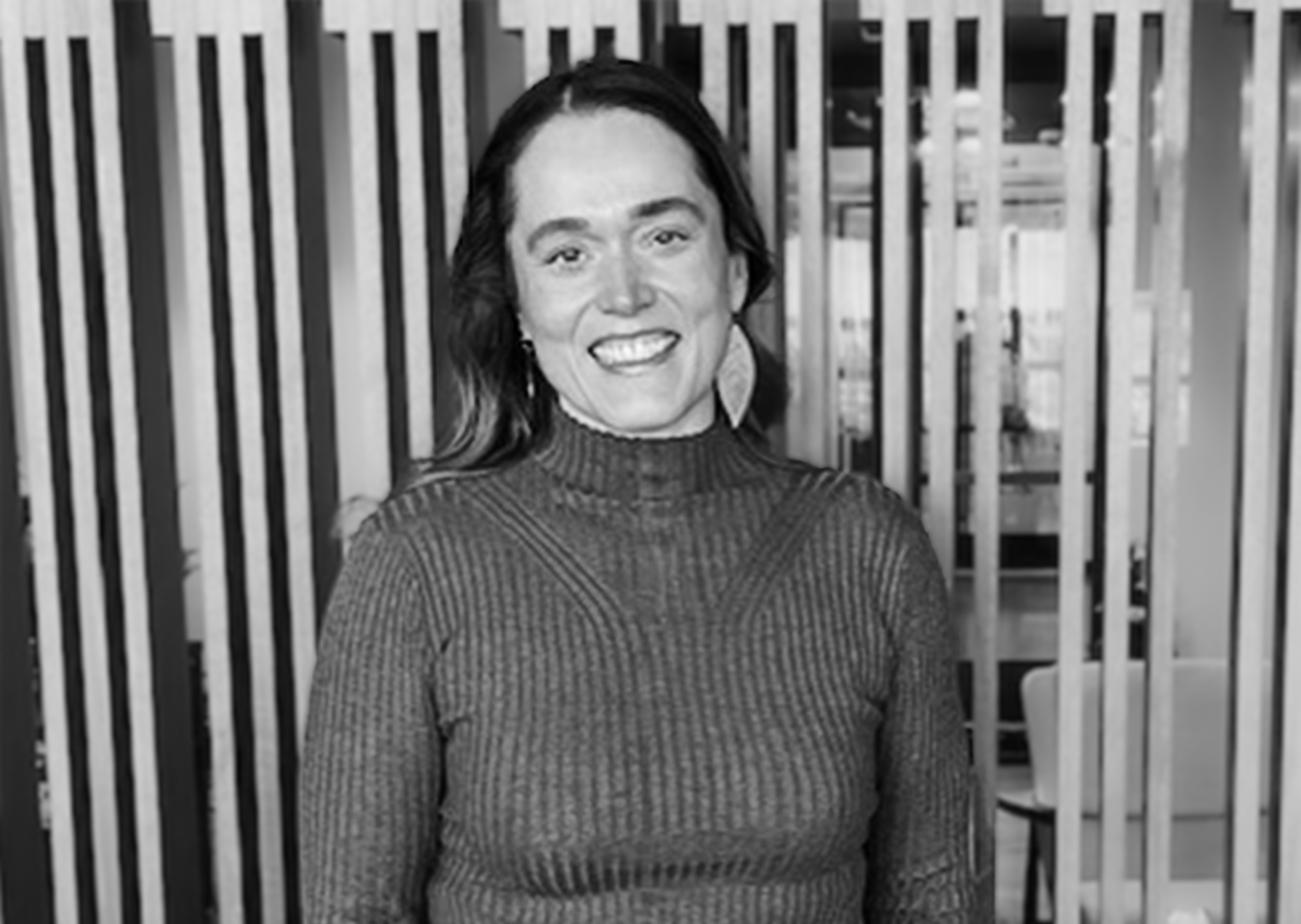
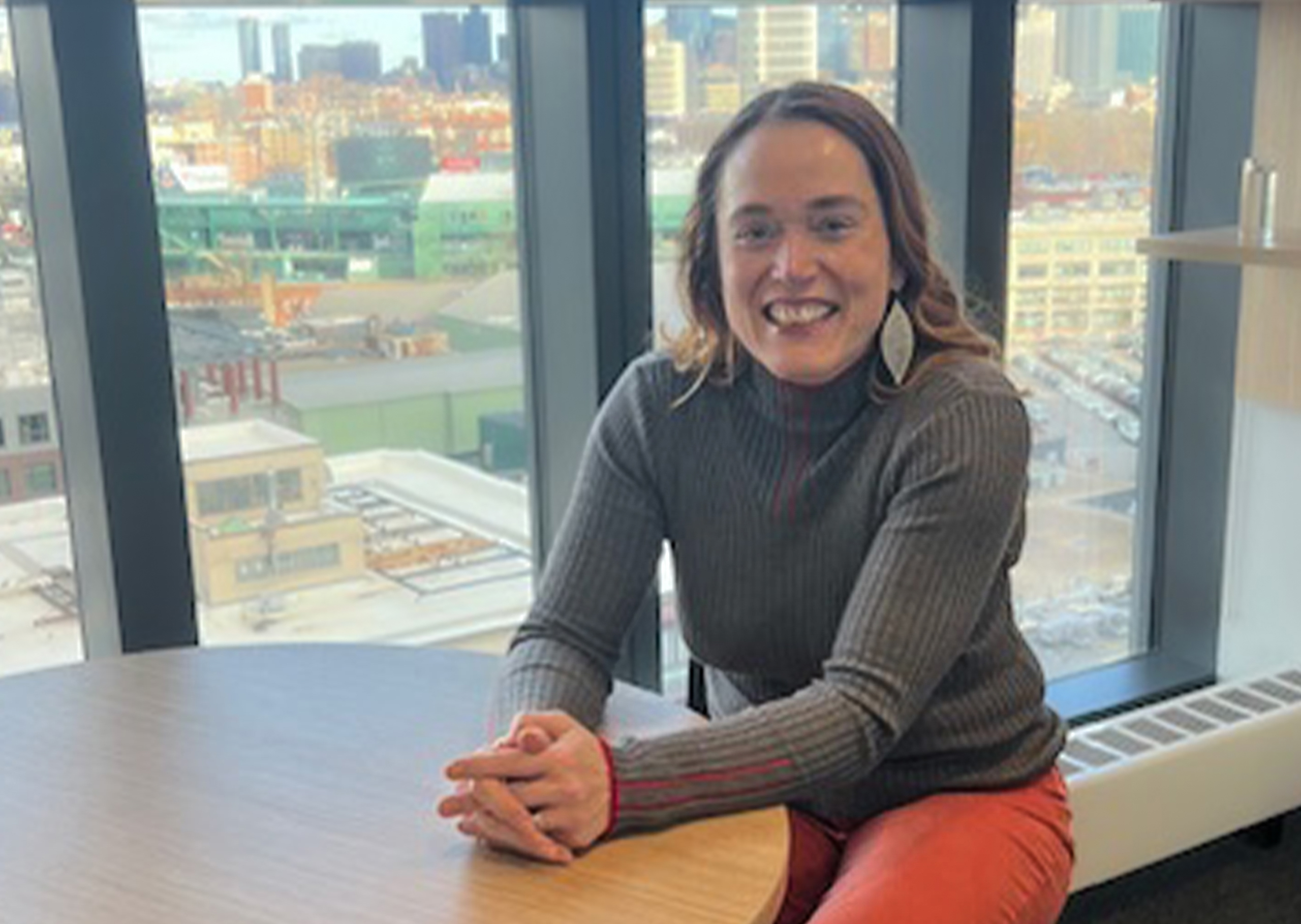
An accomplished scientist with rich experience in cell biology, animal models of cancer and inflammation, pharmacology and translational medicine with over 20 years of experience in drug discovery in both small biotechnology companies and large pharmaceutical companies.
Prior to joining ROME, Heike was the Chief Scientific Officer at Ribon Therapeutics, where she led the discovery and clinical introduction of two first-in-class monoART inhibitors, the PARP7 inhibitor RBN-2397 in oncology, and the PARP14 inhibitor RBN-3143 in I&I. Prior to Ribon, Heike was the Senior Director of Biology at Epizyme where, among other responsibilities, she was the project leader for the company’s EZH2 inhibitor program, tazemetostat, which was FDA-approved in 2020 as Tazverik . Before that, she was a research fellow at Merck and the biology project lead for the company’s clinical stage AKT inhibitor, MK-2206. Heike served on the Board of Directors of Civetta Therapeutics and is an author of more than 40 manuscripts in leading journals.
Heike received her Ph.D. in biochemistry at the Friedrich Schiller University of Jena in Germany and completed postdoctoral training at the Harvard Medical School. She earned a B.S. in biochemistry at the Martin Luther University of Halle-Wittenberg in Germany.


A proven, dynamic biopharma leader with an established track record of implementing and overseeing corporate strategy, executing financings and strategic collaborations, and building and managing business and finance functions.
Kyle Kuvalanka brings over 20 years of experience in senior leadership roles in the biopharmaceutical industry. Prior to joining ROME, he was the Chief Financial Officer and Chief Operating Officer (COO) at Goldfinch Bio, where he oversaw the business, finance, commercial and strategy functions and led a strategic process that resulted in the out-license of the lead assets. Before that, he served as COO and Principal Financial and Accounting Officer at Syros Pharmaceuticals and Chief Business Officer and Principal Financial and Accounting Officer at Blueprint Medicines. In these roles, Kyle helped to transition the companies from early-stage start-ups to publicly traded, clinical-stage organizations, having built the business and finance functions, led the execution of financings, including the companies’ initial public offerings, and led the negotiations of the companies’ early strategic collaborations. Before joining Blueprint Medicines, Kyle worked in roles of increasing responsibility over twelve years at Millennium: The Takeda Oncology Company, including as Vice President of Business Development and Corporate Strategy.
Kyle holds an MBA from The Wharton School of Business, University of Pennsylvania, and a B.A. with Honors from Wesleyan University.
Dr. Wilcoxen is a translational leader with more than 25 years of experience advancing new therapies through preclinical and early clinical development.
Prior to joining Rome, Dr. Wilcoxen served as Senior Vice President, Global Research at Zenas BioPharma where he oversaw non-clinical development, Bioanalytical sciences and Translational medicine. Prior to Zenas, he was the Vice President of Diligence and Non-Clinical Development, followed by Vice President of Translational Research at Boston Pharmaceuticals where he was a core member of the Research & Development Leadership team. Dr. Wilcoxen has 25 years of experience in the biopharmaceutical industry including the successful submission of multiple investigational new drug applications (NDAs) and BLAs. He was a significant contributor to the development of Varubi, Zejula and Jemberli. He previously held roles of increasing responsibility in non-clinical drug development and discovery with TESARO, Eisai, Neurocrine Biosciences, and Pfizer.

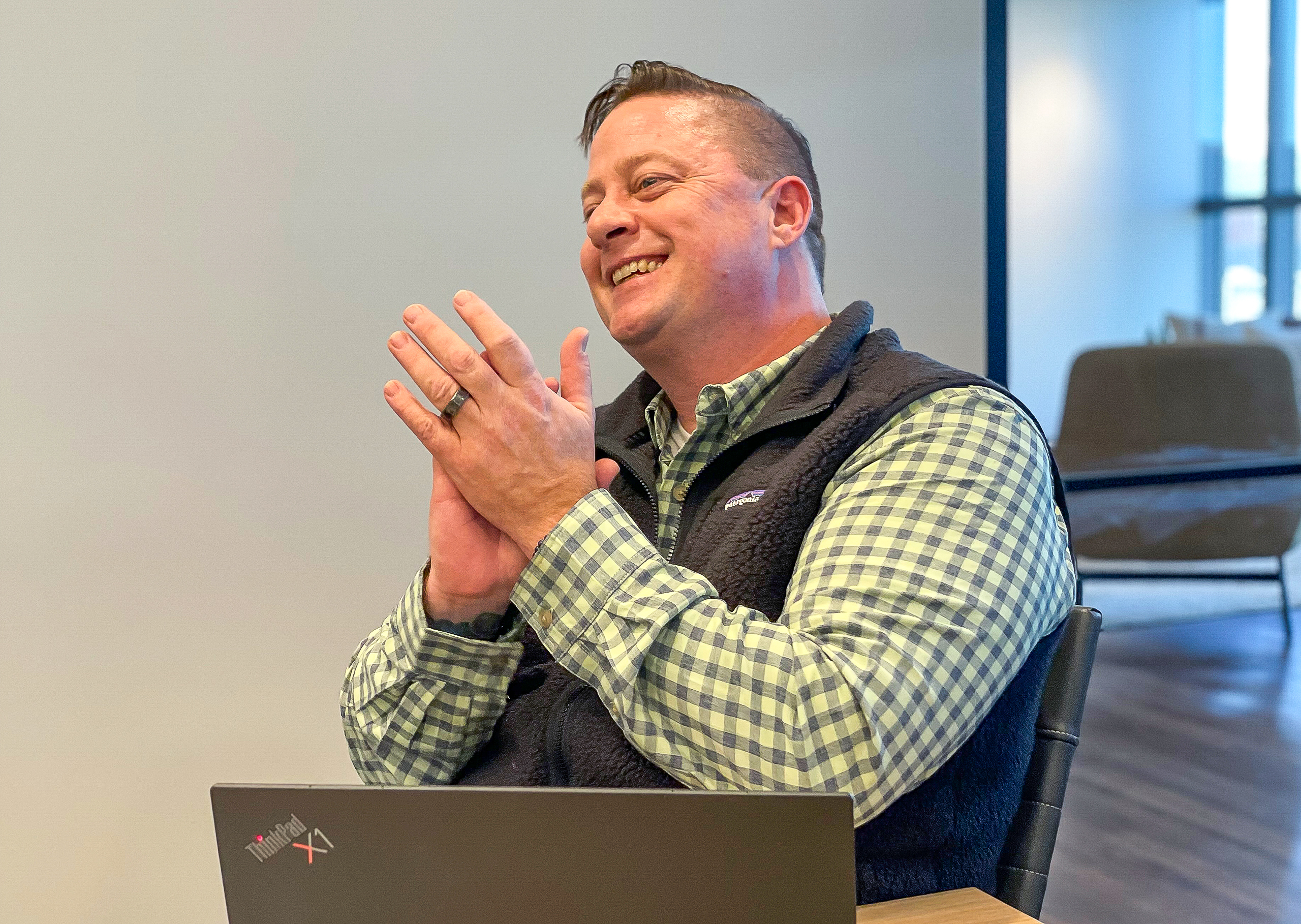
Dr. Wilcoxen is a translational leader with more than 25 years of experience advancing new therapies through preclinical and early clinical development.
Prior to joining Rome, Dr. Wilcoxen served as Senior Vice President, Global Research at Zenas BioPharma where he oversaw non-clinical development, Bioanalytical sciences and Translational medicine. Prior to Zenas, he was the Vice President of Diligence and Non-Clinical Development, followed by Vice President of Translational Research at Boston Pharmaceuticals where he was a core member of the Research & Development Leadership team. Dr. Wilcoxen has 25 years of experience in the biopharmaceutical industry including the successful submission of multiple investigational new drug applications (NDAs) and BLAs. He was a significant contributor to the development of Varubi, Zejula and Jemberli. He previously held roles of increasing responsibility in non-clinical drug development and discovery with TESARO, Eisai, Neurocrine Biosciences, and Pfizer.
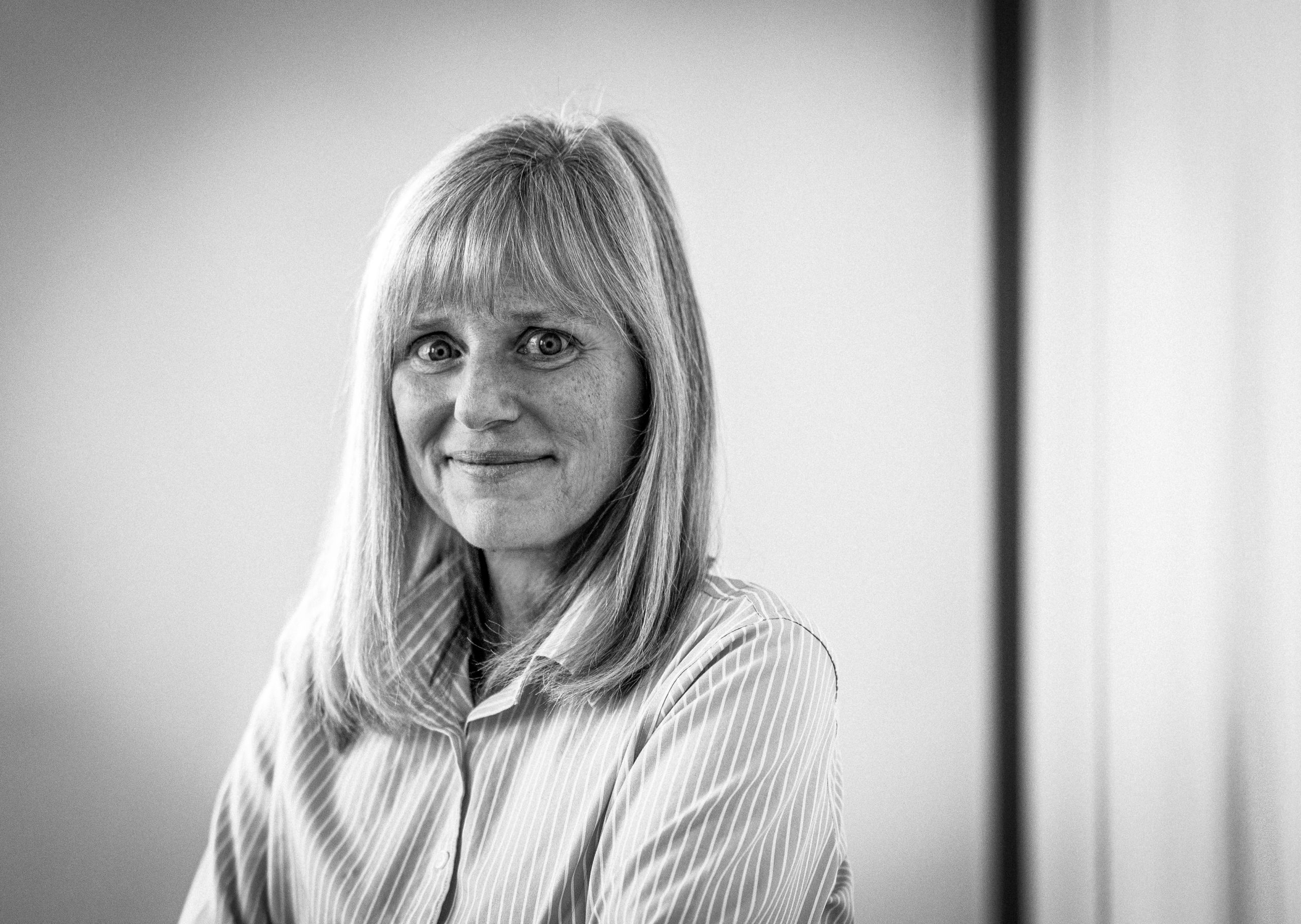

A veteran chemist with extensive leadership experience who is fluent in medicinal, computational and synthetic chemistry.
Donna Romero brings over 25 years of broad leadership experience at biotechnology and large pharmaceutical companies. Prior to joining ROME, she was president of Pharma-Vation Consulting, LLC, which provides medicinal and synthetic chemistry expertise to biotechnology companies, venture capital firms and the NINDS NIH Blueprint Therapeutics for Neuroscience Research (BPN). For nearly a decade, she has worked with numerous biotechnology companies such as Nimbus Therapeutics, Tetra Therapeutics, Vincere Biosciences and Centaurus Therapeutics, where she has led drug discovery and preclinical development projects. Prior to that, Donna held the position of senior director of medicinal chemistry at Pfizer and director of medicinal chemistry at Pharmacia. She has broad experience in project strategy, evaluation, resourcing and cross-disciplinary discovery management. She discovered Rescriptor®, a non-nucleoside reverse transcriptase inhibitor marketed for treating AIDS, has published 48 peer-reviewed papers, and is an inventor on many patents. Donna earned her B.S. in chemistry and computer science at Emory University and her Ph.D. in organic chemistry from the University of Wisconsin-Madison.
A longtime biotech executive who brings a sharp focus on finance, operations and strategic planning.
Kira Nelson steps into her role as ROME’s vice president of finance with a depth of experience in biotech finance and operations. She was most recently the co-founder of N-Squared Financial Consultants, where she helped companies build financial infrastructure, prepared them for initial public offerings and provided guidance in strategic planning, forecasting and internal control development. Kira was also vice president of finance and operations of Aileron Therapeutics and chief financial officer of Omtool, a provider of document capture solutions. She began her career at Arthur Andersen LLP, where she became a certified public accountant. Kira earned a B.A. in economics and accounting from the College of the Holy Cross.
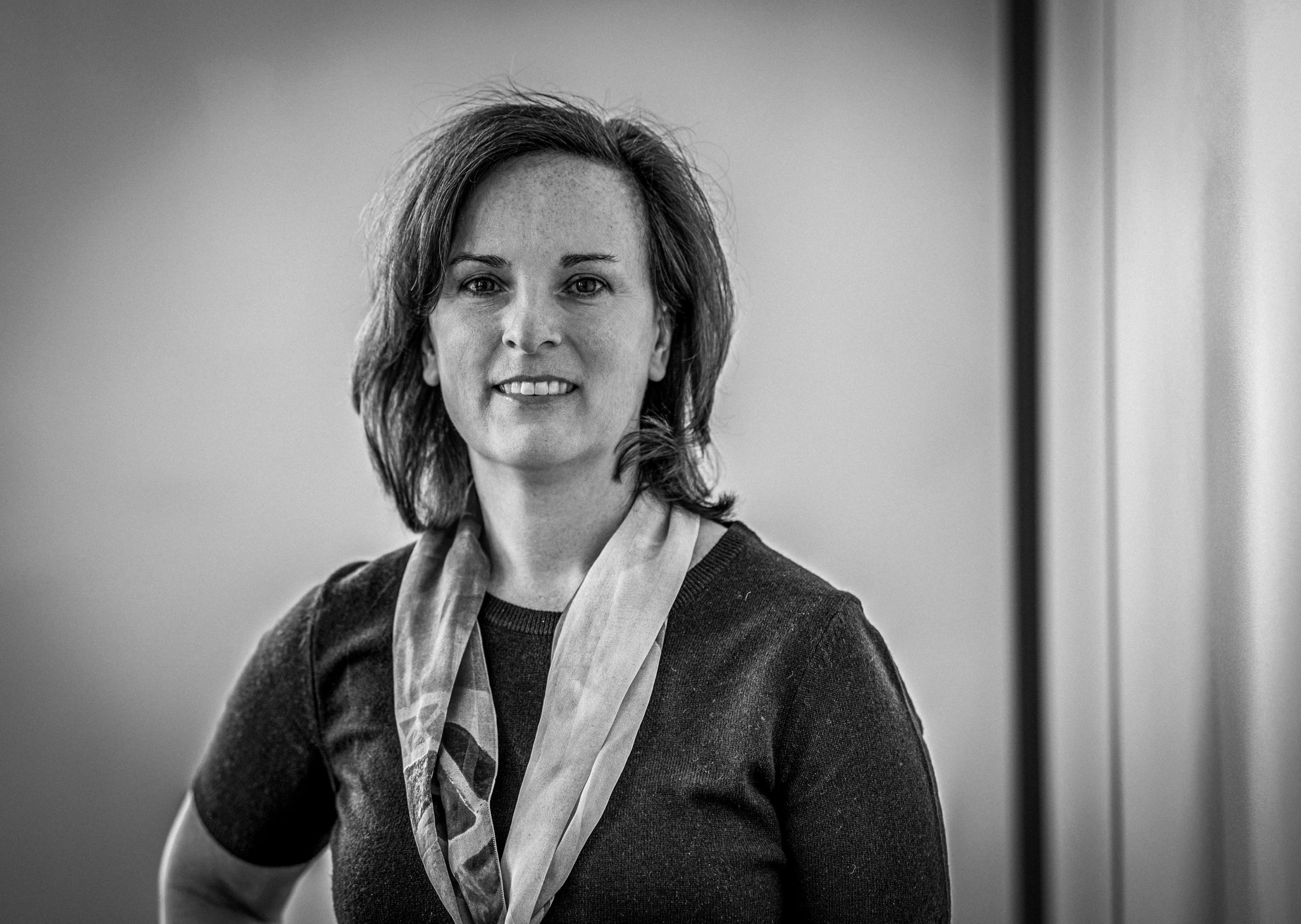

A longtime biotech executive who brings a sharp focus on finance, operations and strategic planning.
Kira Nelson steps into her role as ROME’s vice president of finance with a depth of experience in biotech finance and operations. She was most recently the co-founder of N-Squared Financial Consultants, where she helped companies build financial infrastructure, prepared them for initial public offerings and provided guidance in strategic planning, forecasting and internal control development. Kira was also vice president of finance and operations of Aileron Therapeutics and chief financial officer of Omtool, a provider of document capture solutions. She began her career at Arthur Andersen LLP, where she became a certified public accountant. Kira earned a B.A. in economics and accounting from the College of the Holy Cross.


A veteran builder of strategic partnerships, teams and companies, with a deep background in genomics, diagnostics and oncology and a strong focus on creating long term value through collaboration.
Nurjana Bachman brings 15+ years of experience developing and managing strategic partnerships and is a people-oriented builder of companies and teams. She joined ROME after 6 years at Foundation Medicine, where she established and managed the team that led the company’s corporate partnerships, yielding 50+ companion diagnostic approvals in the US and Japan, and supporting several first-in-class therapeutic approvals in oncology. Prior to joining Foundation Medicine, she served as Chief Business Officer and Co-founder of Claritas Genomics and was responsible for corporate development and fund-raising. She was a key leader in development of the business model, strategic plan and vision for the company, and closed both Series A and B fundraising rounds with multiple strategic investors. Before Claritas, she served as Associate Director of Strategic Initiatives and Business Development at Boston Children’s Hospital, Technology and Innovation Development Office, partnering a diverse set of technologies with outside entities and initiating start-up company formation. Dr. Bachman earned a Ph.D. in molecular biology and genetics at The Johns Hopkins University School of Medicine, where she studied retrotransposition in the laboratory of Jef Boeke, Ph.D., and she holds a B.A. in biology with distinction from Swarthmore College.
An experienced developer of therapeutics across multiple areas of drug discovery, from target discovery through IND.
Dr. Long brings to ROME extensive experience in the development of therapeutics across a broad range of therapeutic areas, including musculoskeletal and neuromuscular disorders, metabolic dysfunction, and inflammatory disorders. Dr. Long most recently was the Head of Biology at Casma Therapeutics, where she and her team worked to develop and characterize novel autophagy-based degraders for use in multiple therapeutic areas. Before Casma Therapeutics, she held multiple positions at Scholar Rock, where she was closely involved with development of the anti-proMyostatin antibody apitegromab, and where she led the efforts of the exploratory biology team. Dr. Long also held positions at Ironwood Pharmaceuticals and Pfizer.
Dr. Long received a B.A. in molecular and cellular biology from Northwestern University and a Ph.D. in Biological Sciences from Stanford University.
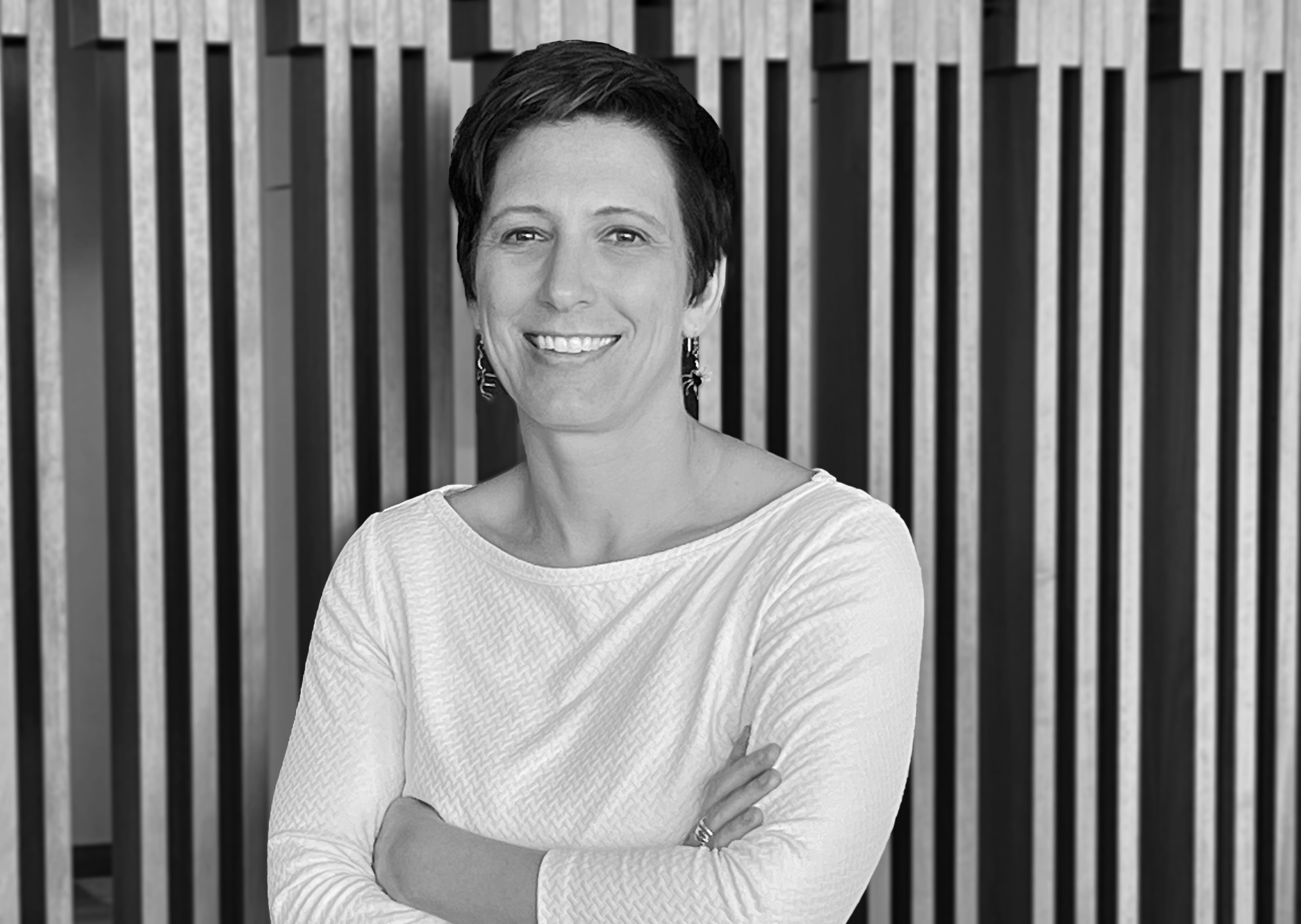
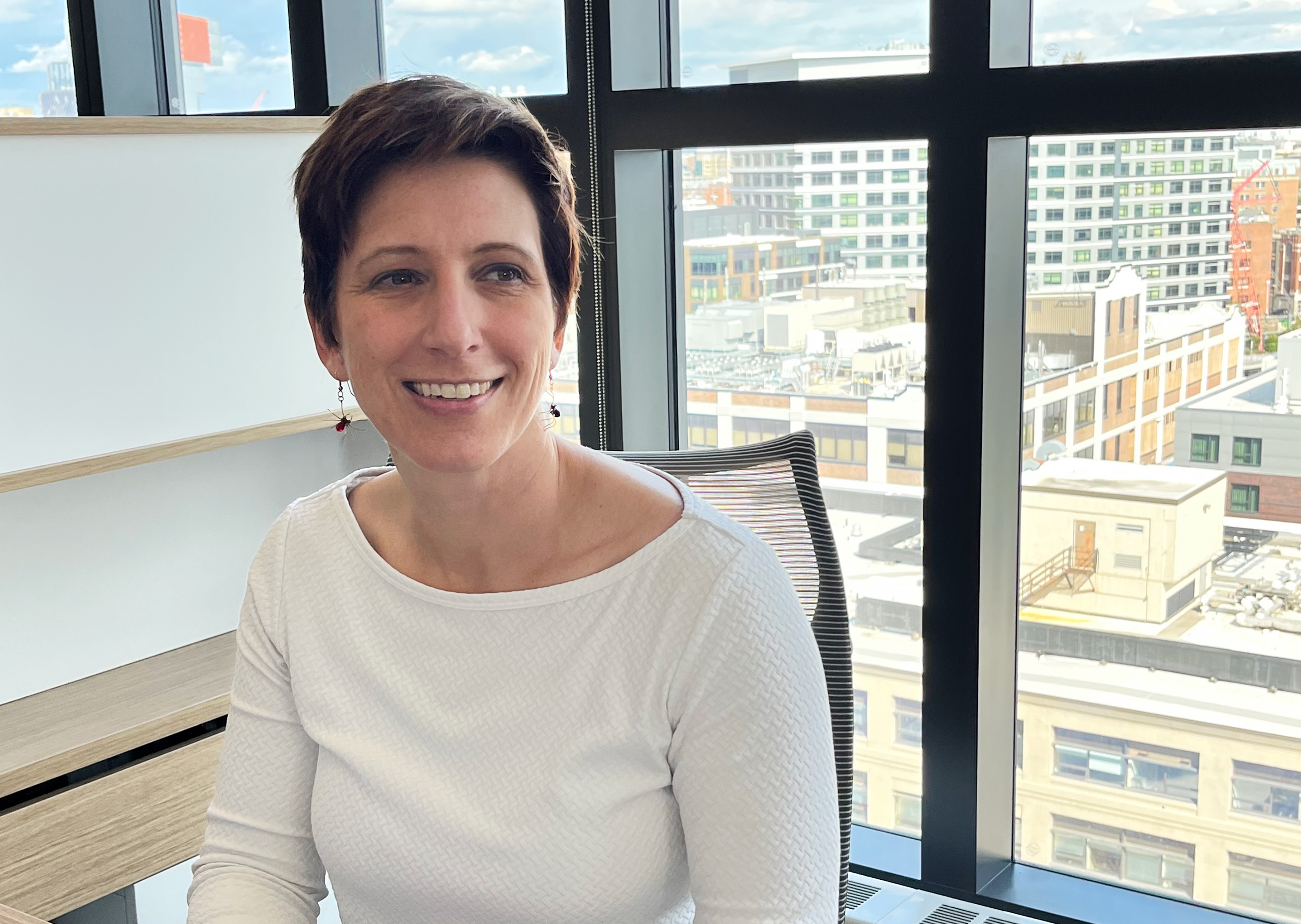
An experienced developer of therapeutics across multiple areas of drug discovery, from target discovery through IND.
Dr. Long brings to ROME extensive experience in the development of therapeutics across a broad range of therapeutic areas, including musculoskeletal and neuromuscular disorders, metabolic dysfunction, and inflammatory disorders. Dr. Long most recently was the Head of Biology at Casma Therapeutics, where she and her team worked to develop and characterize novel autophagy-based degraders for use in multiple therapeutic areas. Before Casma Therapeutics, she held multiple positions at Scholar Rock, where she was closely involved with development of the anti-proMyostatin antibody apitegromab, and where she led the efforts of the exploratory biology team. Dr. Long also held positions at Ironwood Pharmaceuticals and Pfizer.
Dr. Long received a B.A. in molecular and cellular biology from Northwestern University and a Ph.D. in Biological Sciences from Stanford University.
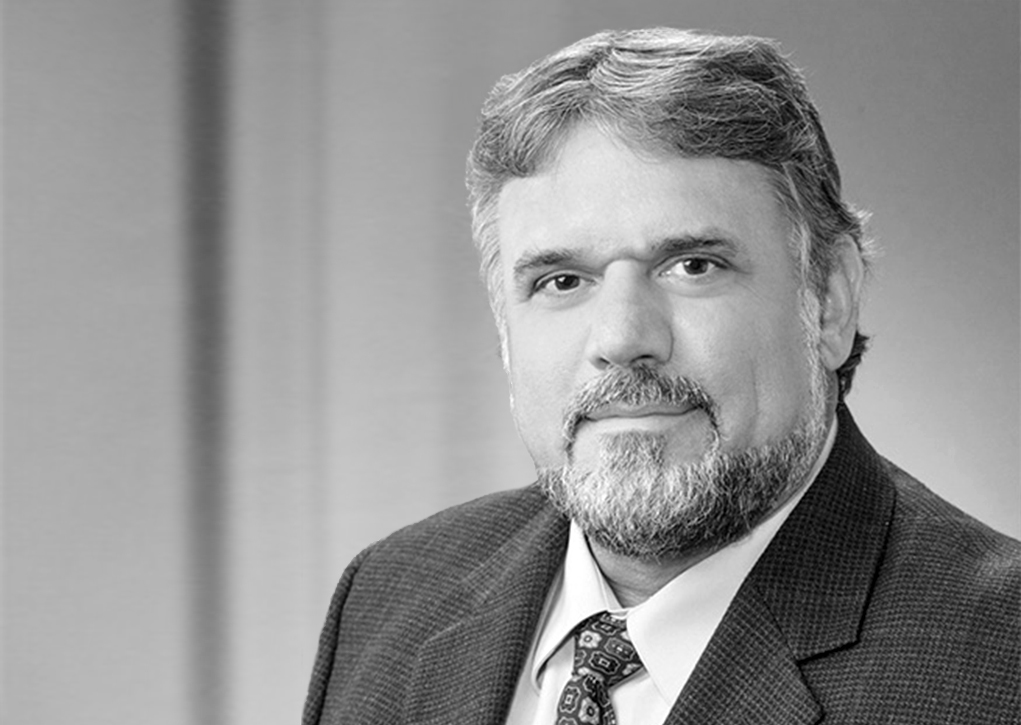

An experienced industry leader with more than 20 years of experience in drug discovery (medicinal chemistry) and early development including oversight of multi-functional teams spanning chemistry, biology, drug disposition/safety, process/analytical technologies, and laboratory management.
Shon currently serves as Vice President, Medicinal Chemistry at ROME Therapeutics, having previously served as Senior Director, Medical Chemistry at the company. Prior to joining ROME, Shon was Principal and Owner of SolTerra Consulting, LLC, where he advised companies on drug discovery programs leading to licensing of development candidates. Previously, he worked at Elanco, a global leader in animal health, where he held several roles of increasing responsibility over nine+ years, including most recently serving as Senior Director, Research Technologies. Prior to that, Shon was a Senior Research Chemist at D&M Continuous Solutions, LLC, a company that provides engineering, equipment, and chemistry consulting for continuous process development. Shon also previously served as Principal Research Scientist and, subsequently, Research Advisor with Eli Lilly and Company, as well as Research and Development Scientist at Pharmacia & Upjohn. Before beginning his industry career, Shon was an Assistant Professor of Organic Chemistry at the University of Missouri.
Shon graduated cum laude from Utah State University with a BS in Chemistry and earned his Ph.D. in chemistry from Colorado State University. He completed a post-doctoral fellowship in organic chemistry at Stanford University, and also received an Executive Certificate from the Kelly School of Business at Indiana University Bloomington.
Board of Directors
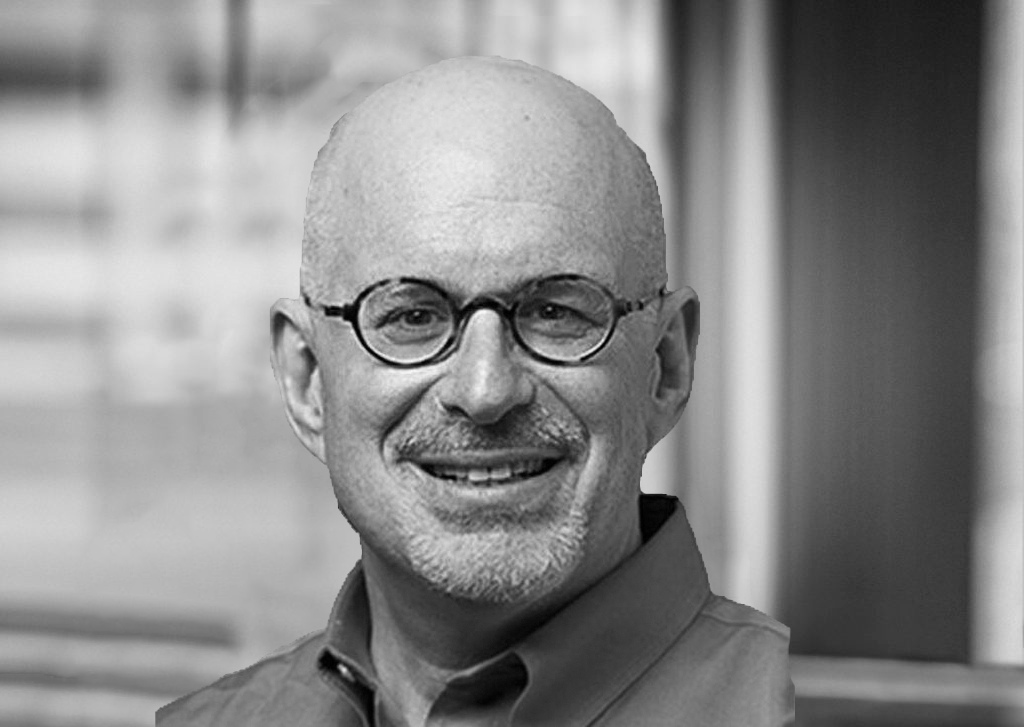
Scott Biller, PhD, is a strategic advisor to Agios Pharmaceuticals and served as the Company’s Chief Scientific Officer from 2010-2019. During his tenure as CSO at Agios, Scott advanced seven molecules into the clinic that resulted in two marketed therapies and multiple late-stage candidates.
Scott has more than 30 years of drug discovery and development experience with notable positions at Novartis Pharmaceuticals and Bristol Myers Squibb.
During his career, Scott contributed to the discovery and development of five approved medicines: JUXTAPID® for familial hypercholesterolemia, ONGLYZA® and FARXIGA® for Type 2 diabetes, and IDHIFA® and TIBSOVO® for acute myeloid leukemia harboring an IDH2 and IDH1 mutation, respectively, as well as two new chemical entities that are currently in pivotal trials.
Scott earned a BS in chemistry at MIT, a PhD in organic chemistry at Caltech and was an NIH Postdoctoral Fellow at Columbia University.
A company creator who has played a major role in founding and launching multiple high-performing companies with backing from ARCH Venture Partners.
Kristina Burow is currently a managing director at ARCH Venture Partners. Since joining ARCH in 2002, she has played a significant role in the creation and development of a number of companies. Kristina is a director of Gossamer Bio (Nasdaq: GOSS), Vividion Therapeutics, Lycera, BlackThorn Therapeutics, Metacrine, Scholar Rock (Nasdaq: SRRK), Unity Biotechnology (Nasdaq: UBX), Beam Therapeutics (NASDAQ: BEAM), Boundless Bio, Autobahn Therapeutics, AgBiome and Vir Biotechnology (Nasdaq: VIR). She previously was a co-founder and director of Receptos, which was acquired by Celgene. Kristina has participated in a number of other ARCH portfolio companies including Mindstrong, Kura Oncology (Nasdaq: KURA), Kythera Biopharmaceuticals (acquired by Allergan) and Ikaria (acquired by Mallinckrodt) and was a co-founder and board member of Sapphire Energy. Prior to joining ARCH, she was an associate with the Novartis BioVenture Fund in San Diego. As an early employee at the Genomics Institute of the Novartis Research Foundation, Kristina directed chemistry operations and was active in business development, helping to create numerous companies as spin-outs from GNF. She holds an MBA from the University of Chicago, an M.A. in chemistry from Columbia University and a B.S. in chemistry from the University of California, Berkeley. While at Berkeley she was a member of the Division 1 swim team.
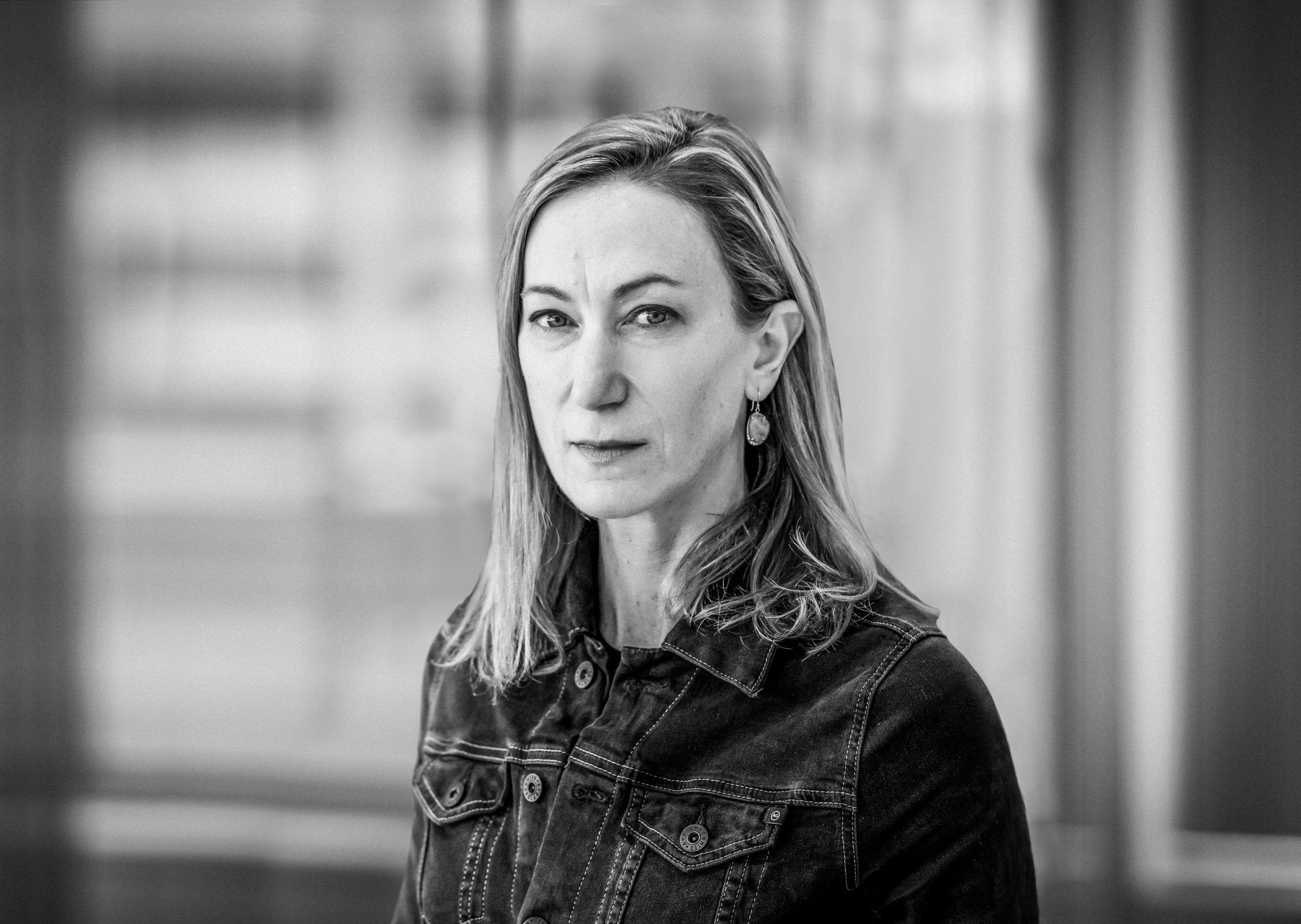
A company creator who has played a major role in founding and launching multiple high-performing companies with backing from ARCH Venture Partners.
Kristina Burow is currently a managing director at ARCH Venture Partners. Since joining ARCH in 2002, she has played a significant role in the creation and development of a number of companies. Kristina is a director of Gossamer Bio (Nasdaq: GOSS), Vividion Therapeutics, Lycera, BlackThorn Therapeutics, Metacrine, Scholar Rock (Nasdaq: SRRK), Unity Biotechnology (Nasdaq: UBX), Beam Therapeutics (NASDAQ: BEAM), Boundless Bio, Autobahn Therapeutics, AgBiome and Vir Biotechnology (Nasdaq: VIR). She previously was a co-founder and director of Receptos, which was acquired by Celgene. Kristina has participated in a number of other ARCH portfolio companies including Mindstrong, Kura Oncology (Nasdaq: KURA), Kythera Biopharmaceuticals (acquired by Allergan) and Ikaria (acquired by Mallinckrodt) and was a co-founder and board member of Sapphire Energy. Prior to joining ARCH, she was an associate with the Novartis BioVenture Fund in San Diego. As an early employee at the Genomics Institute of the Novartis Research Foundation, Kristina directed chemistry operations and was active in business development, helping to create numerous companies as spin-outs from GNF. She holds an MBA from the University of Chicago, an M.A. in chemistry from Columbia University and a B.S. in chemistry from the University of California, Berkeley. While at Berkeley she was a member of the Division 1 swim team.

Jason currently serves as the Managing Director of Sanofi Ventures. Prior to Sanofi, Jason was the Director of Corporate Development at Translate Bio (f.k.a RaNA Therapeutics, LLC) a company co-founded by his previous firm Atlas Venture.
While at Atlas, Jason was an Associate in the Life Sciences group. Previously, he was a Flagship Ventures Entrepreneurial Fellow, and consulted for the technology transfer company at the University of Cambridge while performing his doctoral research. Before his time at Cambridge, Jason was an analyst at JSB Partners LP, an investment banking firm, focusing on advisory and business development activities in the life sciences space.
Jeff is the CEO of Vividion Therapeutics. Jeff joined Vividion as Chief Executive Officer in November 2020, bringing more than 35 years of successful industry leadership, having held multiple senior executive, CEO, and board director roles during his career at both Fortune 500 pharmaceutical and emerging biotechnology companies.
Among Mr. Hatfield’s many career leadership roles, he previously served as the CEO of Vitae Pharmaceuticals, Inc., a pioneer in computational structure-based drug discovery, where he led the company from start-up to clinical-stage advancement of multiple first-in-class programs, and ultimately to its $640 million acquisition by Allergan Plc. Earlier, he served as a senior executive at Bristol-Myers Squibb (BMS), where he held roles including senior vice president, Immunology and Virology Divisions; president, BMS-Canada; and head of U.S. market access. Mr. Hatfield currently serves on the board of directors of Vir Biotechnology, Inc., aTyr Pharma and miRagen Therapeutics. He also serves as a Key Advisory Board member for the Harvard Business School’s Blavatnik Fellowship in Life Science Entrepreneurship, and is a faculty member at Purdue University, where he teaches entrepreneurship to doctoral students. Mr. Hatfield holds an MBA from The Wharton School of the University of Pennsylvania and a B.S. in pharmacy from Purdue University.

Jeff is the CEO of Vividion Therapeutics. Jeff joined Vividion as Chief Executive Officer in November 2020, bringing more than 35 years of successful industry leadership, having held multiple senior executive, CEO, and board director roles during his career at both Fortune 500 pharmaceutical and emerging biotechnology companies.
Among Mr. Hatfield’s many career leadership roles, he previously served as the CEO of Vitae Pharmaceuticals, Inc., a pioneer in computational structure-based drug discovery, where he led the company from start-up to clinical-stage advancement of multiple first-in-class programs, and ultimately to its $640 million acquisition by Allergan Plc. Earlier, he served as a senior executive at Bristol-Myers Squibb (BMS), where he held roles including senior vice president, Immunology and Virology Divisions; president, BMS-Canada; and head of U.S. market access. Mr. Hatfield currently serves on the board of directors of Vir Biotechnology, Inc., aTyr Pharma and miRagen Therapeutics. He also serves as a Key Advisory Board member for the Harvard Business School’s Blavatnik Fellowship in Life Science Entrepreneurship, and is a faculty member at Purdue University, where he teaches entrepreneurship to doctoral students. Mr. Hatfield holds an MBA from The Wharton School of the University of Pennsylvania and a B.S. in pharmacy from Purdue University.
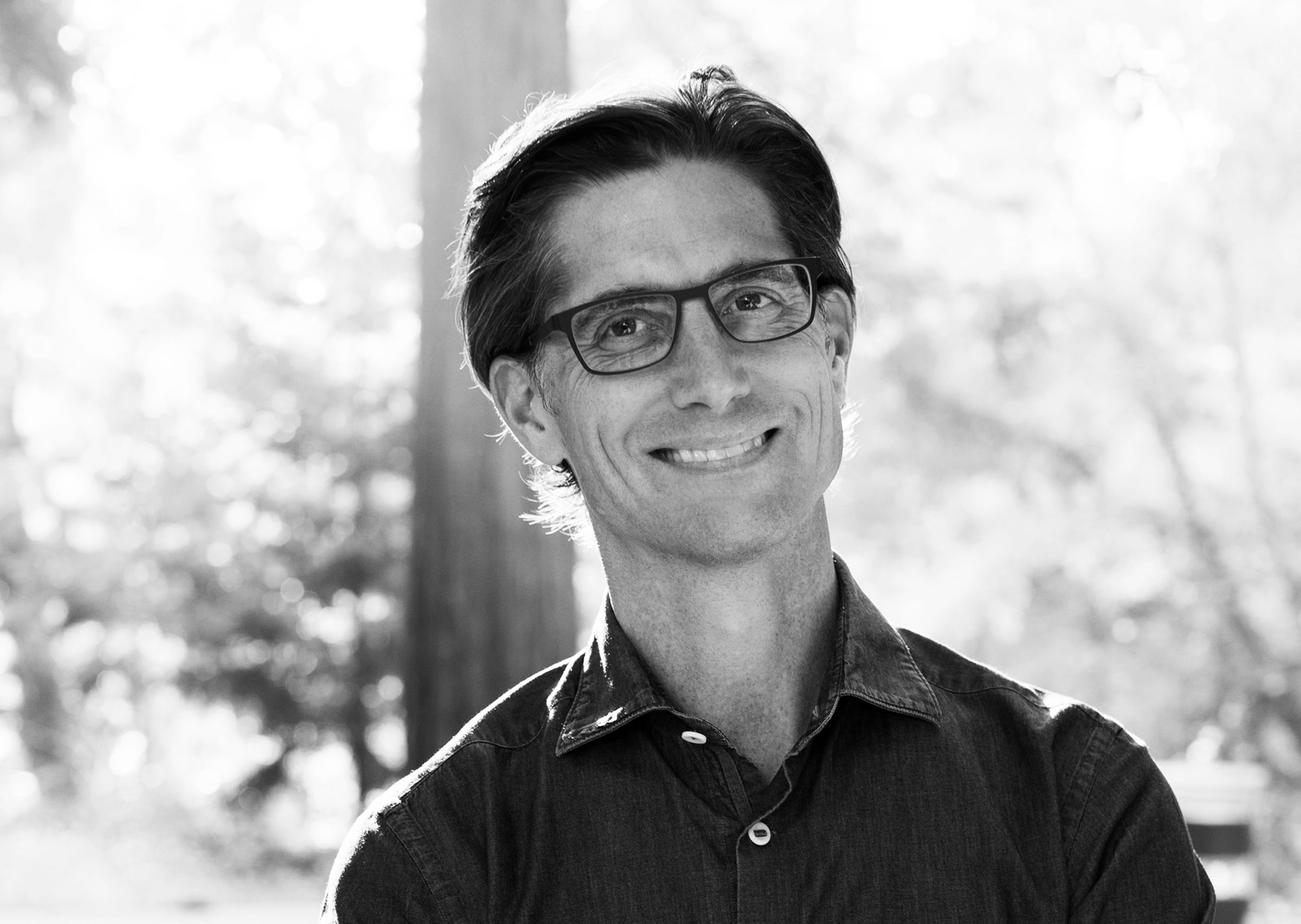
Steve works with exceptional scientists and entrepreneurs to help build companies that seek to create vast improvements in patient care and rewarding professional opportunities for employees.
Steve co-led investment and served as both founding CEO and Executive Chairman of Thrive Earlier Detection, a healthcare company advancing a breakthrough blood test for the earlier detection of multiple types of cancer. Thrive was acquired by Exact Sciences in January 2021. Steve also served as Executive Chairman at the molecular technology company ArcherDX, Inc., which was acquired by Invitae in October 2020. Steve also led Section 32’s investments in C2i Genomics, CelsiusTx, and Glympse Bio where he is also Chairman.
Earlier, Steve was President and Chief Operating Officer at Foundation Medicine, which was acquired by Roche in 2018, and also held leadership roles with several biotechnology companies.
Steve holds a PhD degree in political economy and government from Harvard University and a BA degree in economics and political science from Stanford University.
A champion of exploring new frontiers who brings deep expertise in machine learning and computational technologies and extensive experience in company formation, drug discovery and development.
Rosana Kapeller is co-founder, president and CEO of ROME Therapeutics, integrating her experience over 25 rewarding years as a scientific leader and company creator. As the founding Chief Scientific Officer of Nimbus Therapeutics, she led the company’s application of advanced computational technologies to the design and development of novel therapeutics. Most notably, Rosana led the discovery and development of a new class of Acetyl Co-A carboxylase (ACC) allosteric inhibitors for the treatment of NASH and other disorders, acquired by Gilead Sciences in a blockbuster deal in 2016. Before joining Nimbus, Rosana was a co-founder and VP of research at Aileron Therapeutics, where she led the development of the first stapled peptide drug candidate and was co-author on all major Aileron patents. Prior to ROME, she was an entrepreneur-in-residence at GV, where she is currently a Life Sciences Fellow. Across her entire career, Rosana has raised more than $180 million in venture capital funding and mentored many of today’s industry leaders. She has consulted for Third Rock Ventures and Atlas Venture, is a member of the board of directors of Schrödinger and Cedilla Therapeutics and sits on the key advisory board for the Blavatnik Fellowship in Life Science Entrepreneurship at Harvard Business School. Rosana earned her M.D. from Universidade do Estado do Rio de Janeiro in Brazil and her Ph.D. in molecular and cellular biology from Tufts University.

A champion of exploring new frontiers who brings deep expertise in machine learning and computational technologies and extensive experience in company formation, drug discovery and development.
Rosana Kapeller is co-founder, president and CEO of ROME Therapeutics, integrating her experience over 25 rewarding years as a scientific leader and company creator. As the founding Chief Scientific Officer of Nimbus Therapeutics, she led the company’s application of advanced computational technologies to the design and development of novel therapeutics. Most notably, Rosana led the discovery and development of a new class of Acetyl Co-A carboxylase (ACC) allosteric inhibitors for the treatment of NASH and other disorders, acquired by Gilead Sciences in a blockbuster deal in 2016. Before joining Nimbus, Rosana was a co-founder and VP of research at Aileron Therapeutics, where she led the development of the first stapled peptide drug candidate and was co-author on all major Aileron patents. Prior to ROME, she was an entrepreneur-in-residence at GV, where she is currently a Life Sciences Fellow. Across her entire career, Rosana has raised more than $180 million in venture capital funding and mentored many of today’s industry leaders. She has consulted for Third Rock Ventures and Atlas Venture, is a member of the board of directors of Schrödinger and Cedilla Therapeutics and sits on the key advisory board for the Blavatnik Fellowship in Life Science Entrepreneurship at Harvard Business School. Rosana earned her M.D. from Universidade do Estado do Rio de Janeiro in Brazil and her Ph.D. in molecular and cellular biology from Tufts University.

A chemist by training who has decades of leadership experience in business development and business strategy, with a long-standing focus on oncology.
Jeb Keiper is the Chief Executive Officer of Nimbus Therapeutics, a biotechnology company coupling targets selected based on causal human biology with structure-based drug discovery and development. Mr. Keiper has served as President and Chief Executive Officer and as a member of the Nimbus board of directors since October 2018. He previously served as Chief Business Officer from November 2014 to October 2018 and as Chief Financial Officer from February 2017 to October 2018. Since joining Nimbus, Mr. Keiper has overseen the discovery and development of three programs into clinical testing across a range of indications, raised over $400M in equity funding, executed deals worth over $7B, and returned over $4B in gains back to equity holders.
Prior to joining Nimbus, Mr. Keiper served as the Vice President of Business Development at GSK Oncology (a subsidiary of GlaxoSmithKline plc (NYSE: GSK)) from March 2011 to October 2014, where he was responsible for identifying and concluding several critical collaborations for GSK in Oncology, including the Novartis-GSK Oncology integration, and spent a decade at GSK in various business development leadership roles. Prior to GSK, Mr. Keiper was a consultant at McKinsey & Company starting in September 2000-2002 then September 2004 to 2005, after having started his career as a pharmaceutical chemist at Pfizer Inc. (NYSE: PFE) in 1998.
Mr. Keiper currently serves as a member of the board of directors at private biotechnology companies Cardurion Pharmaceuticals, Inc., and ROME Therapeutics, Inc.
Mr. Keiper received two B.S. degrees, one in chemistry and one in chemical engineering, as well as an M.S. in chemical engineering from the Massachusetts Institute of Technology, and an M.B.A. from the MIT Sloan School of Management with joint program in biomedical enterprises with the Harvard Medical School.
Jay Parrish is Chairman of Pretzel Therapeutics, a Venture Partner at ARCH Venture Partners and co-founder of ROME Therapeutics.
He most recently was co-founder and Chief Business Officer of infectious disease focused Vir Biotechnology, where he helped lead the company as its first employee through its IPO and first drug approval. At ARCH, Jay is also a board member of Interline Therapeutics. Jay is an accomplished scientist who began his career at Gilead Sciences, Inc. in the Medicinal Chemistry group where his research focused on the discovery of small molecule anti-virals, including being a co-inventor of ledipasvir (Harvoni®) and remdesivir (Veklury®). After nearly a decade in research, Jay joined Gilead’s Corporate Development team, ultimately leading infectious disease business development for the company. Jay has authored over 25 peer-reviewed scientific publications and holds over 30 issued patents and applications. He also previously completed a postdoctoral fellowship at the Scripps Research Institute. Jay received his B.S. in chemistry from Emory University, a Ph.D. in synthetic organic chemistry from the University of South Florida and an MBA from the University of California, Berkeley Haas School of Business.

Jay Parrish is Chairman of Pretzel Therapeutics, a Venture Partner at ARCH Venture Partners and co-founder of ROME Therapeutics.
He most recently was co-founder and Chief Business Officer of infectious disease focused Vir Biotechnology, where he helped lead the company as its first employee through its IPO and first drug approval. At ARCH, Jay is also a board member of Interline Therapeutics. Jay is an accomplished scientist who began his career at Gilead Sciences, Inc. in the Medicinal Chemistry group where his research focused on the discovery of small molecule anti-virals, including being a co-inventor of ledipasvir (Harvoni®) and remdesivir (Veklury®). After nearly a decade in research, Jay joined Gilead’s Corporate Development team, ultimately leading infectious disease business development for the company. Jay has authored over 25 peer-reviewed scientific publications and holds over 30 issued patents and applications. He also previously completed a postdoctoral fellowship at the Scripps Research Institute. Jay received his B.S. in chemistry from Emory University, a Ph.D. in synthetic organic chemistry from the University of South Florida and an MBA from the University of California, Berkeley Haas School of Business.

A physician, programmer and entrepreneur who brings a broad perspective across all aspects of the biotech industry as a general partner at GV.
Krishna Yeshwant, a general partner at GV, is a physician, programmer and entrepreneur who has been working with GV since its creation. He first began at Google as part of the New Business Development team. Prior to joining GV, Krishna helped start an electronic data interchange company that was acquired by Hewlett-Packard and a network security company that was acquired by Symantec. He has worked with the technology transfer offices of MIT, Harvard and Massachusetts General Hospital. Krishna has a B.S. in computer science from Stanford University. He earned an M.D. from Harvard Medical School and completed his residency at Brigham and Women’s Hospital in Boston, Massachusetts where he is an internist. Krishna also holds an MBA from Harvard Business School.
Scientific Co-founders
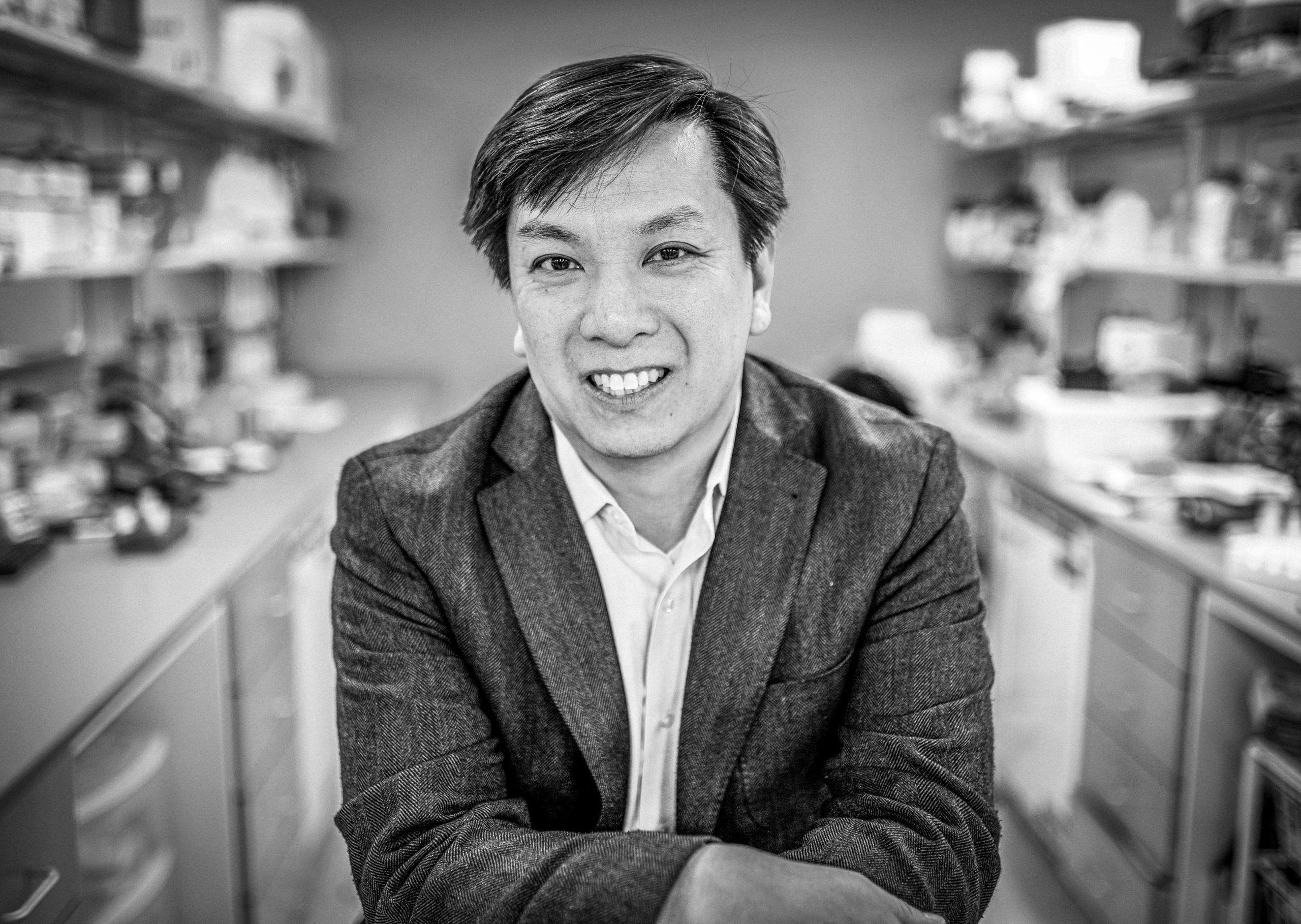
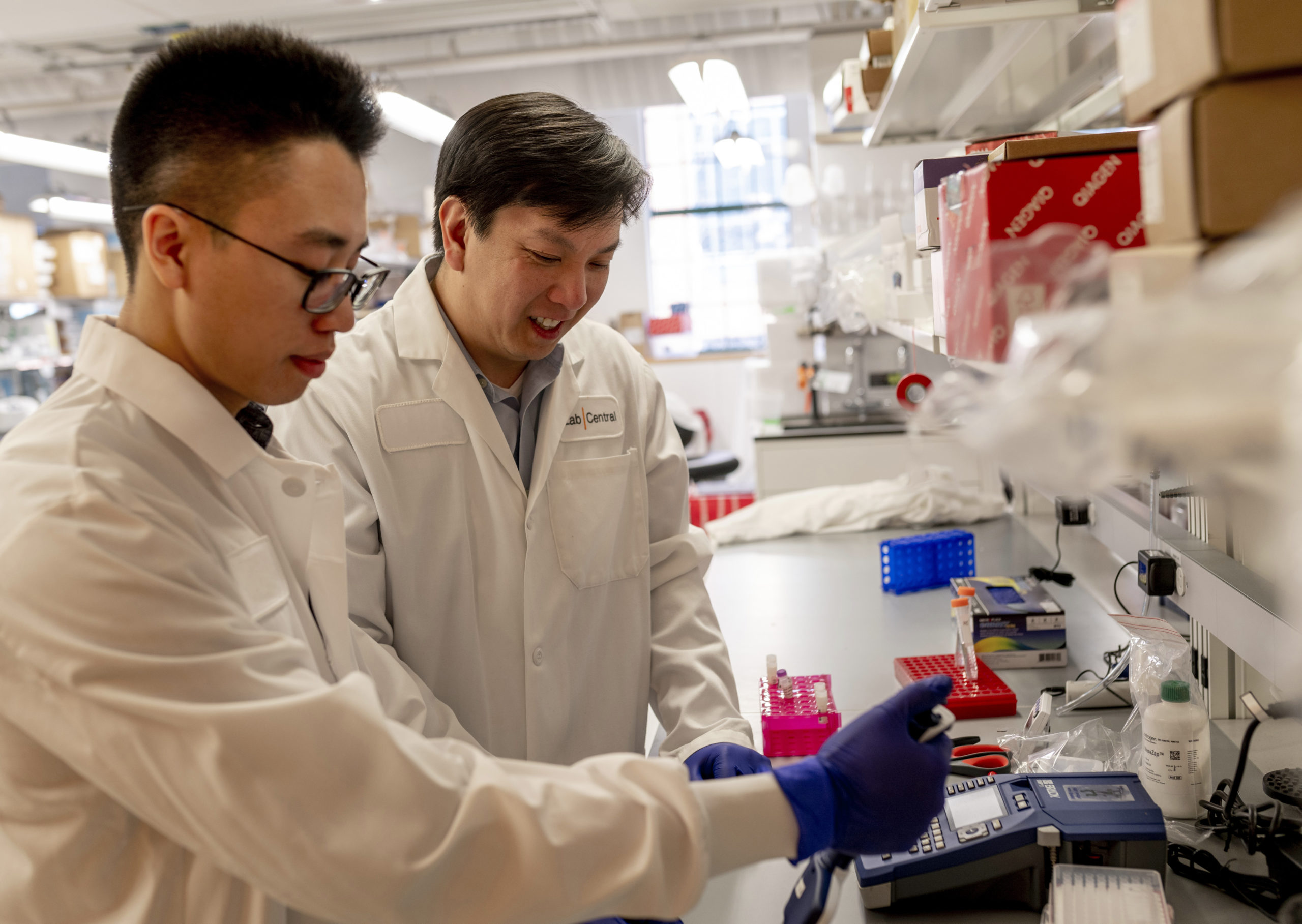
A physician scientist, cancer biologist and bioengineer who serves as associate clinical director for innovation at the Massachusetts General Hospital Cancer Center.
David T. Ting is currently a physician scientist, cancer biologist and bioengineer, as well as an associate clinical director for innovation and a gastrointestinal oncologist at the Massachusetts General Hospital (MGH) Cancer Center. He is also an assistant professor of medicine at Harvard Medical School. David’s lab works on understanding RNA expression patterns in cancer to gain biological insight into cancer progression, identify biomarkers for early detection and develop new therapeutic avenues against cancer. His group uses an innovative microfluidic device to capture rare circulating tumor cells (CTCs) in the blood of cancer patients and combines this with next generation RNA-sequencing as a “liquid biopsy” for blood based early detection biomarkers and to understand the molecular underpinnings of cancer metastasis. In addition, David’s group has discovered a new class of non-coding RNAs that appear important for the cancer immune response that they are now developing as a novel cancer therapeutic. During his undergraduate and medical school studies, he trained with Dr. Robert Langer at MIT on drug delivery platforms and completed a Howard Hughes Medical Institute fellowship at the Whitehead Institute at MIT working on stem cell biology with Dr. George Daley, current Dean of Harvard Medical School. David completed internal medicine residency at the MGH and medical oncology fellowship in the combined Dana-Farber Cancer Institute and MGH Cancer Center program. He moved on to post-doctoral training with Daniel Haber’s group at the MGH Cancer Center working on CTCs and novel RNA biomarkers in cancer. David received his B.S. in chemical engineering and biology from MIT, and completed his medical degree at Harvard Medical School from the Harvard-MIT health sciences and technology program with magna cum laude honors.
A theoretical physicist by training who studies the intersection of cancer research, immunology, evolutionary theory and virology.
Benjamin D. Greenbaum is an associate attending computational oncologist at Memorial Sloan Kettering Cancer Center in the department of epidemiology and biostatistics and the inaugural program leader in computational immune-oncology. He previously worked as an associate professor at the Icahn School of Medicine at Mt. Sinai, where he conducted much of the foundational scientific research that led to the formation of ROME Therapeutics. Ben uses techniques from statistical physics, information theory and evolutionary biology to better understand the interaction of host tumoral RNA with the innate immune system, the role of tumor antigens in the evolution of tumors both generally and in response to immunotherapy, and various aspects of virus evolution. He has been named a NextGen Innovator by HemOnc Today, and was awarded the Phillip A. Sharp Award for Innovation in Collaboration from Stand Up to Cancer – where he is a co-leader of a Convergence 2.0 team studying the interactions between neoantigens and T cells in pancreatic cancer – and the Pershing Square Sohn Prize and Mark Foundation Fellowship. Ben trained in the theoretical division of Los Alamos National Laboratory and the Simons Center for Systems Biology at the Institute for Advanced Study in Princeton, where he was the Eric and Wendy Schmidt Long-Term Member. He earned his Ph.D. in theoretical physics from Columbia University, where he was also an undergraduate major in physics and philosophy of science.
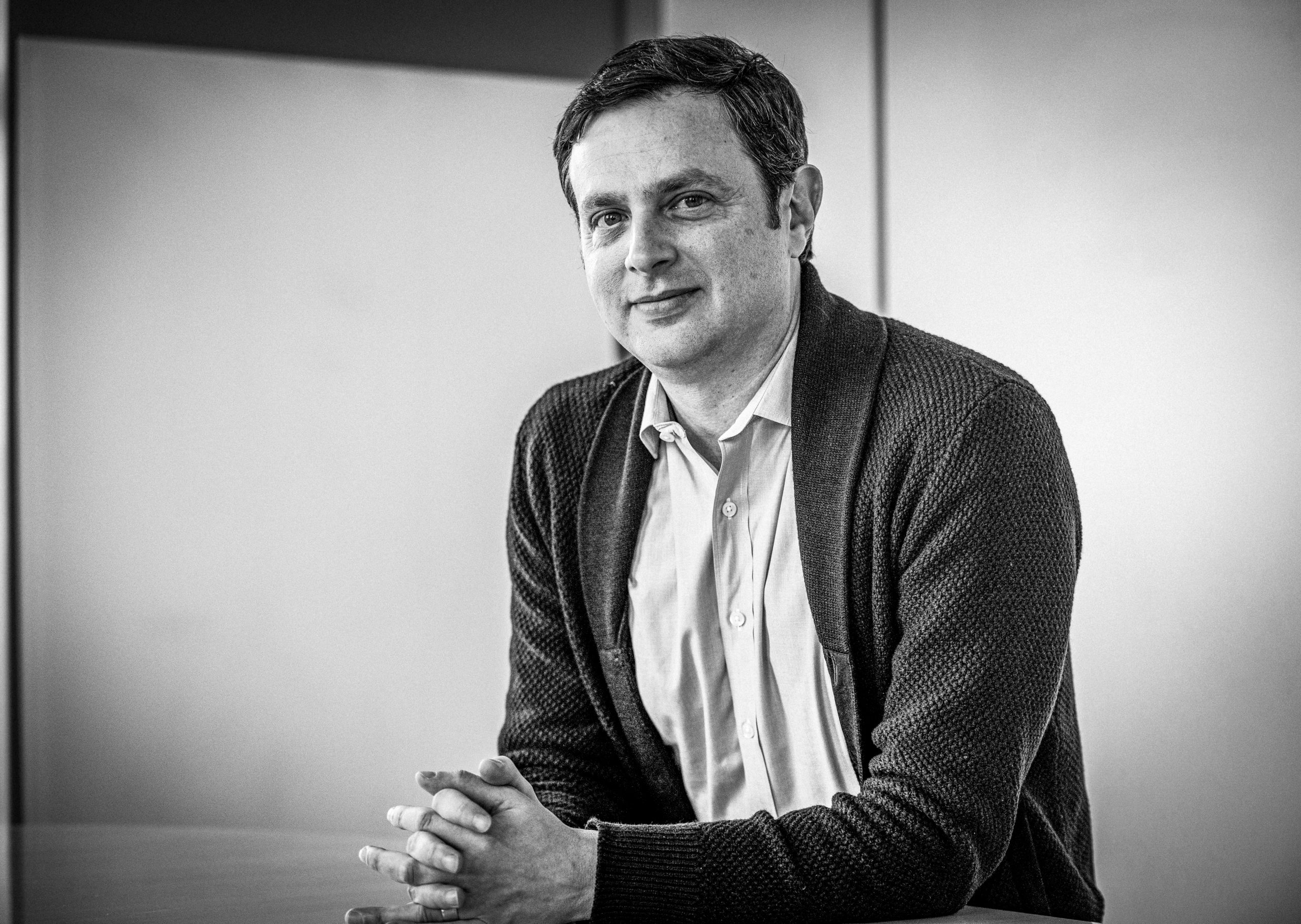
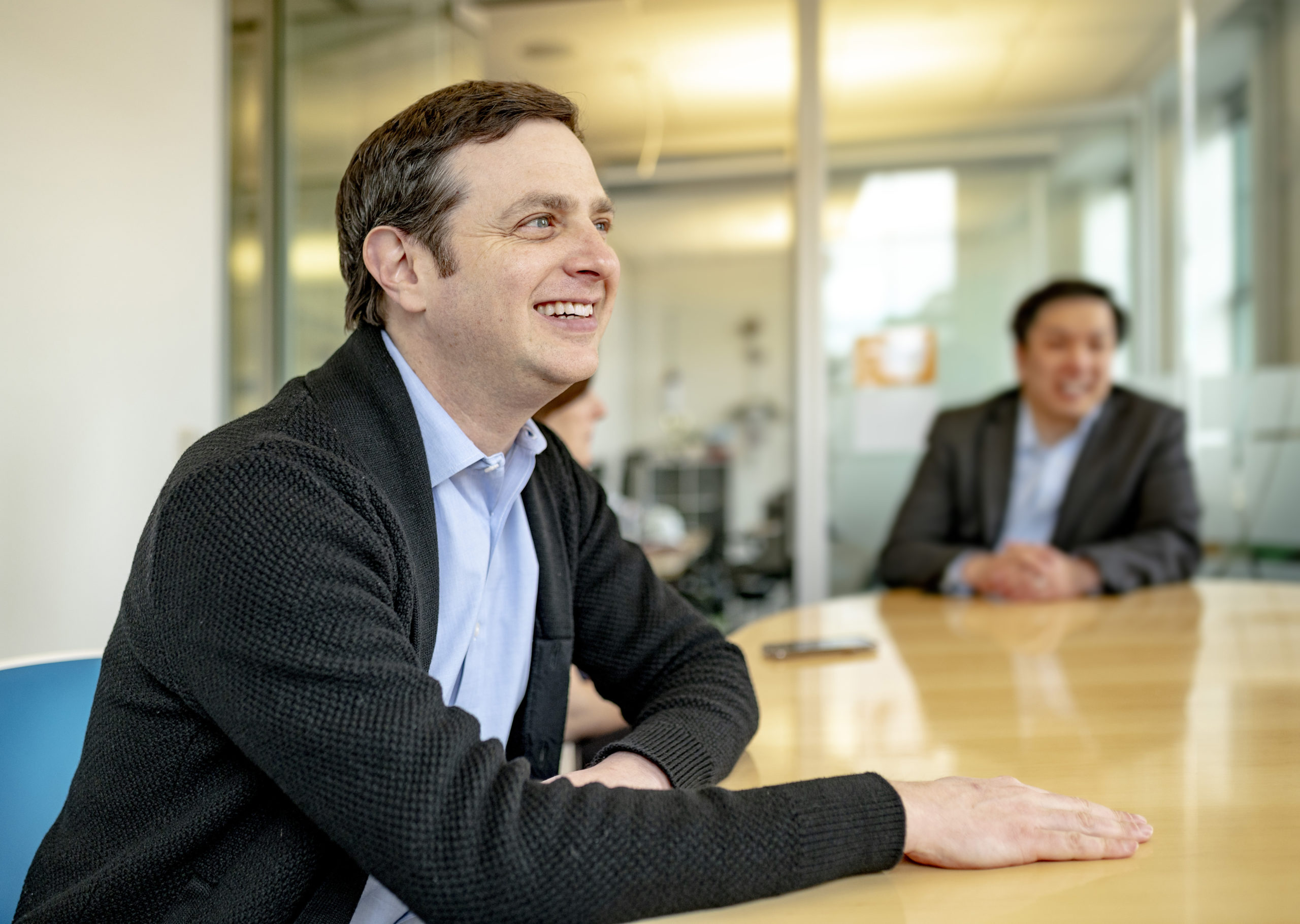
A theoretical physicist by training who studies the intersection of cancer research, immunology, evolutionary theory and virology.
Benjamin D. Greenbaum is an associate attending computational oncologist at Memorial Sloan Kettering Cancer Center in the department of epidemiology and biostatistics and the inaugural program leader in computational immune-oncology. He previously worked as an associate professor at the Icahn School of Medicine at Mt. Sinai, where he conducted much of the foundational scientific research that led to the formation of ROME Therapeutics. Ben uses techniques from statistical physics, information theory and evolutionary biology to better understand the interaction of host tumoral RNA with the innate immune system, the role of tumor antigens in the evolution of tumors both generally and in response to immunotherapy, and various aspects of virus evolution. He has been named a NextGen Innovator by HemOnc Today, and was awarded the Phillip A. Sharp Award for Innovation in Collaboration from Stand Up to Cancer – where he is a co-leader of a Convergence 2.0 team studying the interactions between neoantigens and T cells in pancreatic cancer – and the Pershing Square Sohn Prize and Mark Foundation Fellowship. Ben trained in the theoretical division of Los Alamos National Laboratory and the Simons Center for Systems Biology at the Institute for Advanced Study in Princeton, where he was the Eric and Wendy Schmidt Long-Term Member. He earned his Ph.D. in theoretical physics from Columbia University, where he was also an undergraduate major in physics and philosophy of science.
Scientific Advisory Board
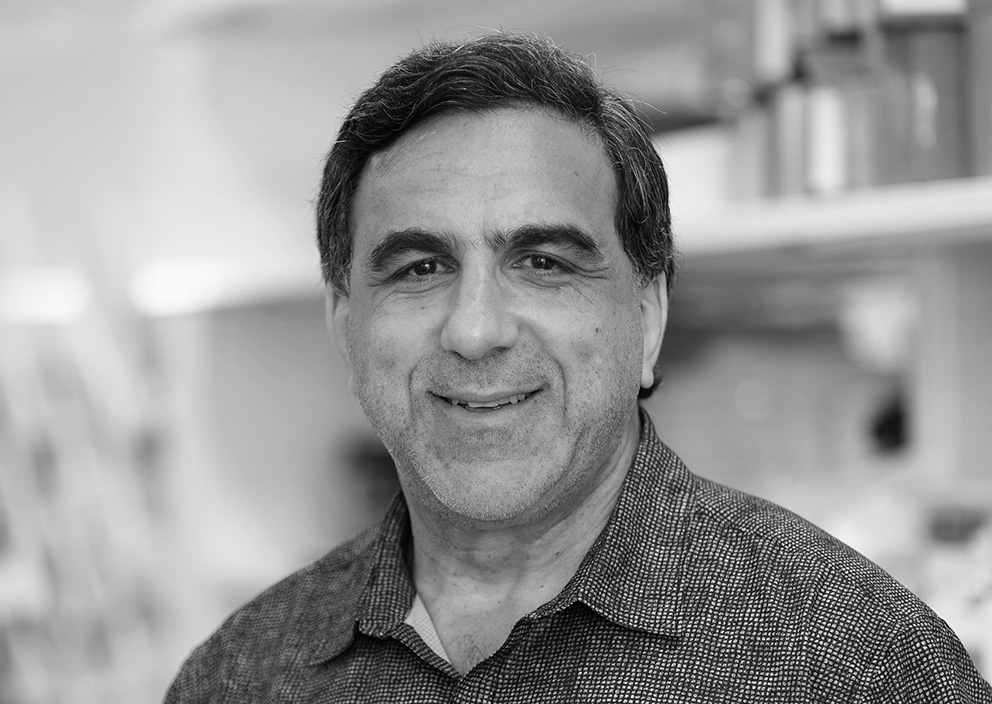
A highly experienced drug discovery scientist and immunology expert with a successful track record of developing innovative medicines for patients in need across multiple therapeutic areas, including cancer and autoimmune disease.
Dennis has more than 30 years of experience in the biopharma industry. Most recently, he spent five years as executive director, integrative sciences at Celgene (later Bristol Myers Squibb) in Cambridge, Mass. In this role, he provided scientific leadership across a large portfolio of external collaborations with early stage biotechs in immunology, fibrosis and immuno-oncology. During his time at Celgene, Dennis participated in more than 20 joint steering research committees with biotechs and academic collaborators and helped bring six novel molecules to the clinic. Prior to Celgene, he spent 25 years at Merck Research Laboratories in a series of roles with increasing responsibility leading large drug discovery teams at Merck’s New Jersey and Boston sites. While at Merck, Dennis helped to advance 28 molecules into the clinic resulting in eight marketed drugs, including aprepitant, sitagliptin and vibegron. Before joining industry, he conducted academic research at the California Institute of Technology. Dennis has a B.S. from the State University of New York at Albany, and an M.A., M.Phil. & Ph.D. from Columbia University. He is an author of more than 60 manuscripts in leading journals covering a variety of scientific discoveries and is an inventor on seven patents.
A renowned chemist who helped pioneer understanding of the HIV reverse transcriptase to develop a novel class of AIDS drugs.
Eddy Arnold is a renowned leader in the fields of structural biology and drug design and a Distinguished Professor in the chemistry and chemical biology department at Rutgers University. Eddy is also a resident member of the Center for Advanced Biotechnology and Medicine, where his research group pursues studies of HIV reverse transcriptase structure and function, and has helped in the created of five medicines used to treat HIV/AIDS. Eddy earned his bachelor’s and doctoral degrees in organic chemistry at Cornell University.
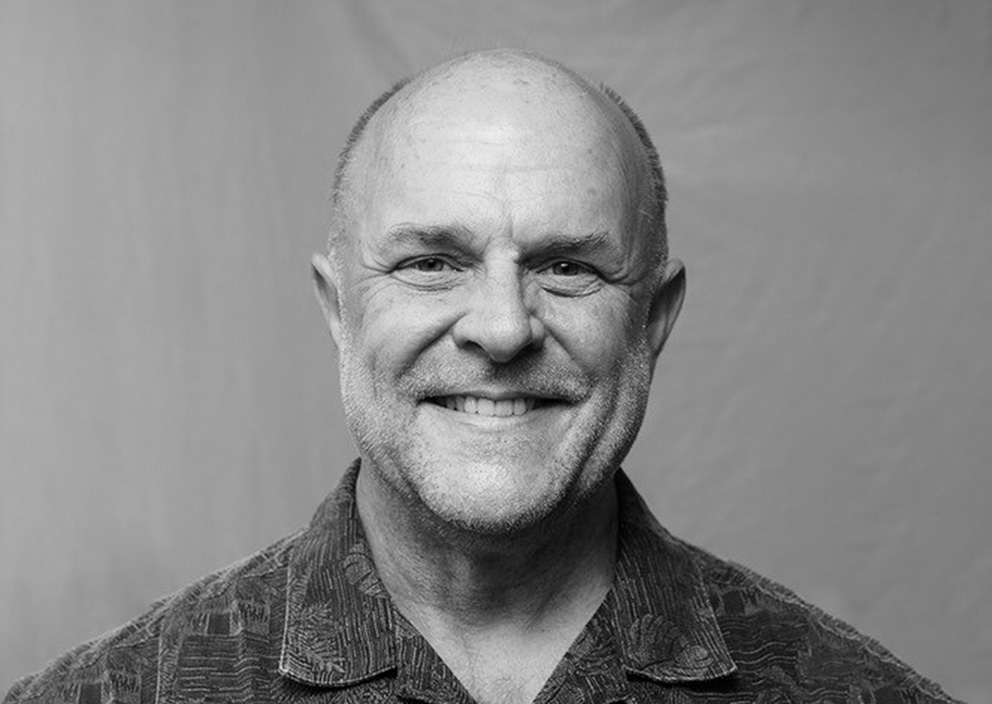
A renowned chemist who helped pioneer understanding of the HIV reverse transcriptase to develop a novel class of AIDS drugs.
Eddy Arnold is a renowned leader in the fields of structural biology and drug design and a Distinguished Professor in the chemistry and chemical biology department at Rutgers University. Eddy is also a resident member of the Center for Advanced Biotechnology and Medicine, where his research group pursues studies of HIV reverse transcriptase structure and function, and has helped in the created of five medicines used to treat HIV/AIDS. Eddy earned his bachelor’s and doctoral degrees in organic chemistry at Cornell University.

A physician by training who now directs cutting-edge scientific research in oncology.
Nina Bhardwaj is the director of immunotherapy and medical director of the Vaccine and Cell Therapy Laboratory at the Icahn School of Medicine at Mount Sinai and co-director of the Cancer Immunology Program at the Tisch Cancer Institute. Her focus is on translating basic science into clinically relevant patient trials, with a particular focus on dendritic cell-based immunotherapies. She is also a member of the Cancer Research Institute’s scientific advisory council and clinical leadership committee. She is a senior editor for Cancer Immunology Research and Frontiers in Immunology. Nina has served on numerous NIH study sections and advisory councils and was formerly chair of the Cancer Immunology Steering Committee of the American Association for Cancer Research. She has secured multiple federal and foundation grants and has authored more than 200 publications. Nina was named one of Scientific American’s Top 50 Researchers in 2004. In recognition of her accomplishments, she also received the 2015 Frederick W. Alt Award for New Discoveries in Immunology. Nina earned her Ph.D. from NYU’s Medical School, where she went on to work as a professor of medicine, pathology and dermatology as well as was the director of the tumor vaccine program.
The founding director of The Institute for Systems Genetics at NYU Langone Medical Center.
He served on the faculty at Johns Hopkins University School of Medicine from 1988-2013. He is known for foundational work on mechanistic and genomic aspects of retrotransposition, a term he coined to describe this process, common to virtually all eukaryotic genomes and studied by a worldwide scientific community. His studies helped elucidate the intricate molecular mechanisms involved in retrotransposition in yeasts, mice and humans. Current work is focused on genomic and phenotypic impacts of LINE-1 in humans and other animals.
In the area of Synthetic Genomics, he uses a yeast platform to explore construction of designer synthetic chromosomes, leading an international team synthesizing the yeast genome, Sc2.0. In 2018, he launched the “Dark Matter Project” (www.thedarkmatterproject.org) designed to better understand the “instruction manuals” that specify how human genes are expressed, using big DNA technology to build mammalian gene loci in yeast and then deliver those loci and their variants to stem cells. This has, among other things, led to technology to rapidly design and deploy humanized mouse models. During the pandemic, he led a team of volunteers to develop ultra-high throughput coronavirus PCR testing, leading to founding the Pandemic Response Lab, the largest COVID-19 testing operation in New York City. Boeke has founded several biotechnology companies, including Avigen Inc., CDI Labs, and Neochromosome, Inc.

The founding director of The Institute for Systems Genetics at NYU Langone Medical Center.
He served on the faculty at Johns Hopkins University School of Medicine from 1988-2013. He is known for foundational work on mechanistic and genomic aspects of retrotransposition, a term he coined to describe this process, common to virtually all eukaryotic genomes and studied by a worldwide scientific community. His studies helped elucidate the intricate molecular mechanisms involved in retrotransposition in yeasts, mice and humans. Current work is focused on genomic and phenotypic impacts of LINE-1 in humans and other animals.
In the area of Synthetic Genomics, he uses a yeast platform to explore construction of designer synthetic chromosomes, leading an international team synthesizing the yeast genome, Sc2.0. In 2018, he launched the “Dark Matter Project” (www.thedarkmatterproject.org) designed to better understand the “instruction manuals” that specify how human genes are expressed, using big DNA technology to build mammalian gene loci in yeast and then deliver those loci and their variants to stem cells. This has, among other things, led to technology to rapidly design and deploy humanized mouse models. During the pandemic, he led a team of volunteers to develop ultra-high throughput coronavirus PCR testing, leading to founding the Pandemic Response Lab, the largest COVID-19 testing operation in New York City. Boeke has founded several biotechnology companies, including Avigen Inc., CDI Labs, and Neochromosome, Inc.
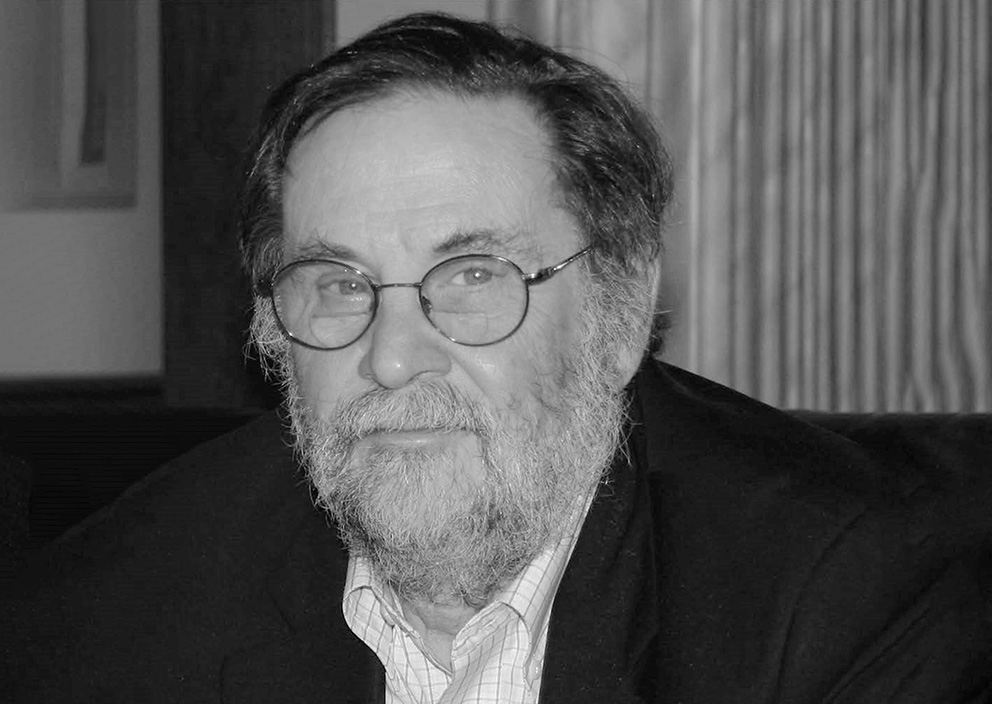
A veteran policy analyst who has helped advise the director of the National Cancer Center’s Center for Cancer Research, among other prominent institutions.
John Coffin holds the post of American Cancer Society Research Professor at the Tufts University School of Medicine and is a special advisor to the director at the National Cancer Institute’s Center for Cancer Research. He serves on a number of national committees to review and set policy regarding retroviruses and disease. John previously served as the founding director of the HIV Drug Resistance Program (renamed as the HIV Dynamics and Replication Program in 2015) in the National Cancer Institute. John was elected to membership in the National Academy of Sciences in 1999. He received his Ph.D. from the University of Wisconsin in the laboratory of Dr. Howard Temin and was a postdoctoral fellow with Dr. Charles Weissmann at the University of Zürich.
An expert in viral replication who has contributed to the development of novel classes of viral polymerase inhibitors.
Matthias Götte obtained his Ph.D. at the Max-Planck-Institute of Biochemistry in Martinsried, Germany. He was a member of the microbiology and immunology department at McGill University in Montreal from 2000 to 2014. Matthias was honored with the National Researcher Award from the Fund for Health Research of Quebec. In 2014, he relocated his laboratory to the University of Alberta and assumed the position as chair of the department of medical microbiology & immunology. His research focuses on the study of viral replication and its inhibition with direct-acting antivirals. While HIV and HCV were major themes in his time at McGill, he is now interested in viruses with high epidemic potential, including Ebola, Lassa, influenza and coronaviruses. His work on the mechanism of action of Remdesivir against SARS-CoV-2 provides a recent example. He has published approximately 130 peer-reviewed papers, reviews and book chapters in the field of virology and antivirals. His research program is funded through grants from the Canadian Institutes of Health Research, the Provincial Government of Alberta and contracts from industry.
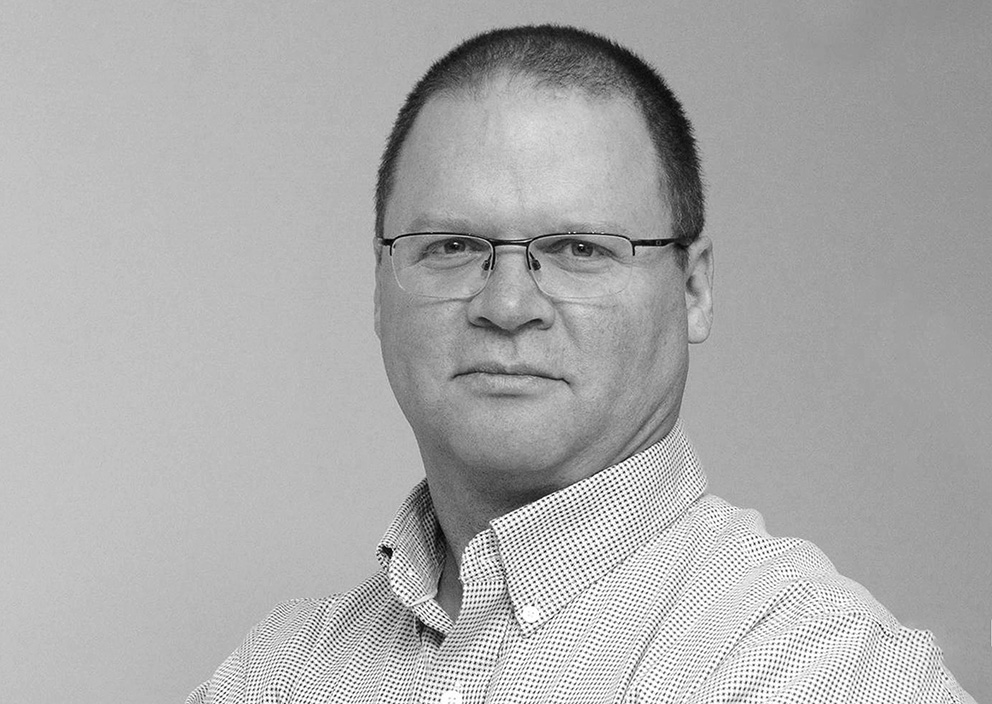
An expert in viral replication who has contributed to the development of novel classes of viral polymerase inhibitors.
Matthias Götte obtained his Ph.D. at the Max-Planck-Institute of Biochemistry in Martinsried, Germany. He was a member of the microbiology and immunology department at McGill University in Montreal from 2000 to 2014. Matthias was honored with the National Researcher Award from the Fund for Health Research of Quebec. In 2014, he relocated his laboratory to the University of Alberta and assumed the position as chair of the department of medical microbiology & immunology. His research focuses on the study of viral replication and its inhibition with direct-acting antivirals. While HIV and HCV were major themes in his time at McGill, he is now interested in viruses with high epidemic potential, including Ebola, Lassa, influenza and coronaviruses. His work on the mechanism of action of Remdesivir against SARS-CoV-2 provides a recent example. He has published approximately 130 peer-reviewed papers, reviews and book chapters in the field of virology and antivirals. His research program is funded through grants from the Canadian Institutes of Health Research, the Provincial Government of Alberta and contracts from industry.
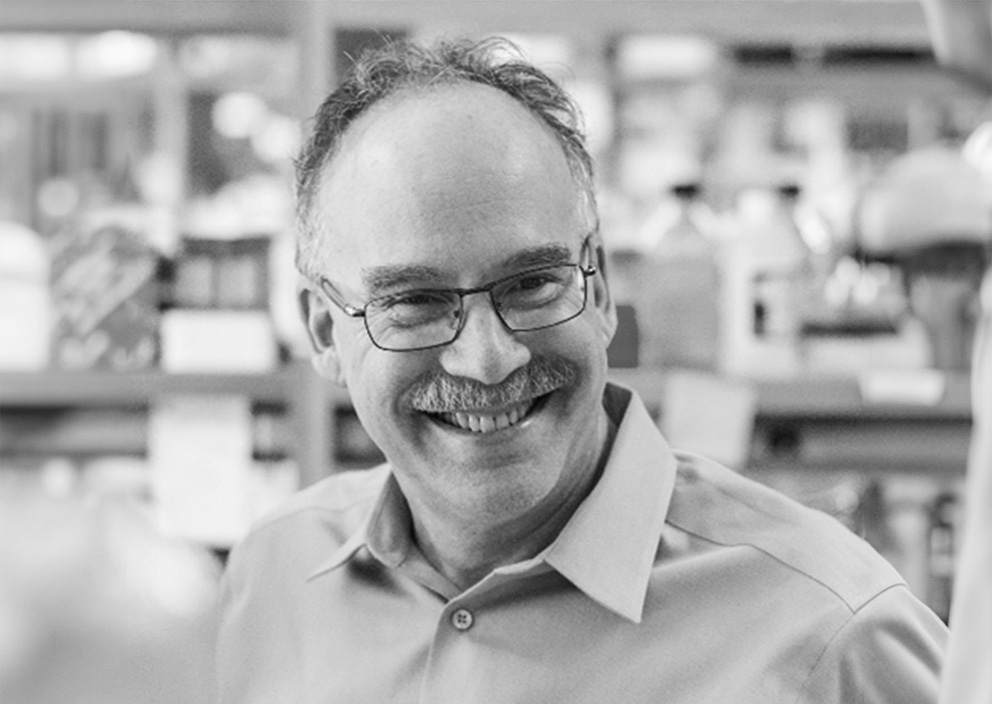
A leading researcher in cancer genetics who has made seminal discoveries on genetic drivers of lung and breast cancer, among other diseases.
Daniel Haber is director of the Massachusetts General Hospital (MGH) Cancer Center and the Kurt Isselbacher Professor of Oncology at Harvard Medical School (HMS). His research has focused primarily in the field of cancer genetics, resulting in discoveries on the origin of the pediatric kidney cancer Wilms tumor, genetic predispositions to breast cancer and mutations that define a subset of “non-smoker” lung cancers that are uniquely sensitive to targeted new therapies. In collaboration with MGH bioengineer Dr. Mehmet Toner, Daniel’s laboratory has developed a novel technology for isolating rare circulating tumor cells (CTCs) from the blood of cancer patients—a tool that may have profound implications for early diagnosis of cancer and for non-invasive molecular profiling of cancers during therapy. His numerous awards include a MERIT Award from the National Cancer Institute, a Dream Team Award from the Prostate Cancer Foundation and a Dream Team Award from Stand-Up-To-Cancer and the Richard and Linda Rosenthal Memorial Award from the American Association for Cancer Research (AACR). He was appointed to the Howard Hughes Medical Institute in 2008, and he was elected to the Institute of Medicine in 2009, the American Academy of Arts and Sciences in 2011 and the National Academy of Sciences in 2018. He received his M.D./Ph.D. from Stanford in 1983, completed an internal medicine residency at MGH, clinical oncology training at Dana-Farber Cancer Institute (DFCI) and a postdoctoral research fellowship at MIT.
A biologist who has helped shape U.S. science priorities and who helped discover the p53 tumor suppressor protein.
Arnie J. Levine is currently a professor emeritus at The Simons Center for Systems Biology at The Institute for Advanced Study, which he founded. Previously, Arnie served as president of The Rockefeller University. He also presided over a major expansion of Princeton’s life sciences programs as chairman of the department of molecular biology. Arnie was among the team that discovered the p53 tumor suppressor protein, a molecule that inhibits tumor development. He helped shape U.S. science priorities as chairman of an influential 1996 review panel on federal AIDS research funding. Arnie has also chaired the National Cancer Advisory Board, which advises the National Academy of Sciences and its Institute of Medicine on cancer policy. He was elected to the National Academy of Sciences in 1991 and to its Institute of Medicine in 1995. In April 2001, Arnie received the first Albany Medical Center Prize in Medicine and Biomedical Research, the largest annual prize in science or medicine offered in the United States. He received his B.A. in biology from Harpur College at Binghamton University and his Ph.D. from the University of Pennsylvania.
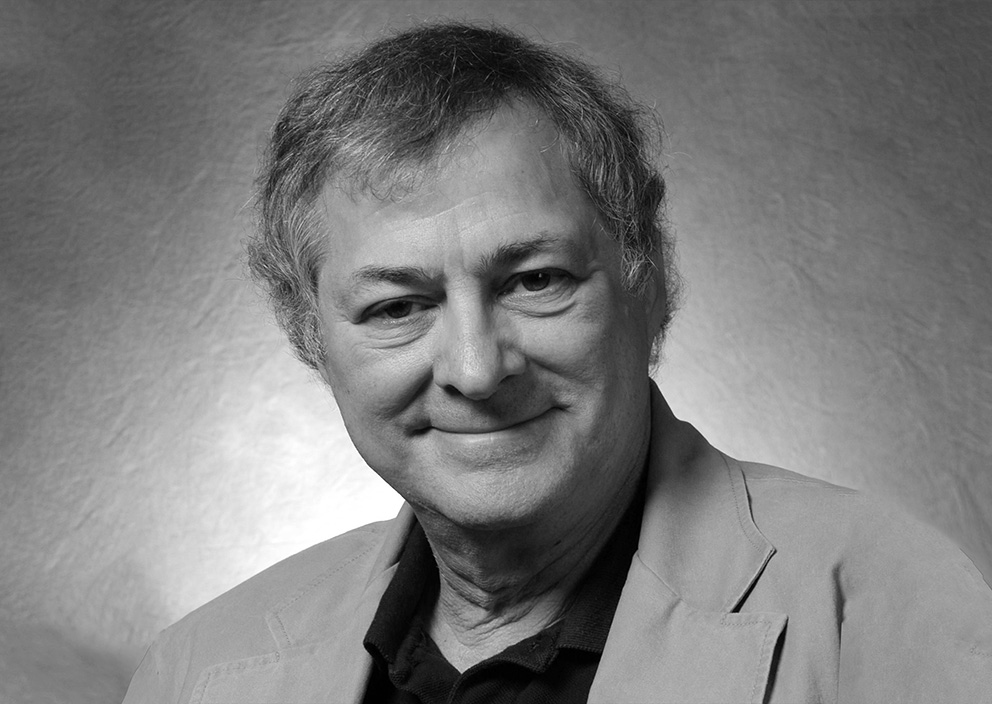
A biologist who has helped shape U.S. science priorities and who helped discover the p53 tumor suppressor protein.
Arnie J. Levine is currently a professor emeritus at The Simons Center for Systems Biology at The Institute for Advanced Study, which he founded. Previously, Arnie served as president of The Rockefeller University. He also presided over a major expansion of Princeton’s life sciences programs as chairman of the department of molecular biology. Arnie was among the team that discovered the p53 tumor suppressor protein, a molecule that inhibits tumor development. He helped shape U.S. science priorities as chairman of an influential 1996 review panel on federal AIDS research funding. Arnie has also chaired the National Cancer Advisory Board, which advises the National Academy of Sciences and its Institute of Medicine on cancer policy. He was elected to the National Academy of Sciences in 1991 and to its Institute of Medicine in 1995. In April 2001, Arnie received the first Albany Medical Center Prize in Medicine and Biomedical Research, the largest annual prize in science or medicine offered in the United States. He received his B.A. in biology from Harpur College at Binghamton University and his Ph.D. from the University of Pennsylvania.

Tomas Mustelin is the Professor of Medicine and Chief of Rheumatology at the University of Washington.
His current research is focused on elucidating the molecular underpinnings of rheumatoid arthritis, systemic lupus erythematosus, ANCA-associated vasculitis, primary Sjögren’s syndrome, and other autoimmune conditions. He is exploring the role of retrotransposons and endogenous retroviruses in the pathogenesis of these diseases. Professor Mustelin has more than 35 years of research experience, including 10 years as a senior executive in drug discovery and development in the biotech/pharma industry where he led the generation of over two dozen novel drug candidates. He has been a professor since 1999 and has published over 250 papers. Tomas earned MD and PhD degrees from the University of Helsinki, Finland. He was a post doc at Scripps Clinic in La Jolla, CA, is a Docent in Cell Biology at the University of Helsinki, and a licensed physician in the European Union.
Investors














